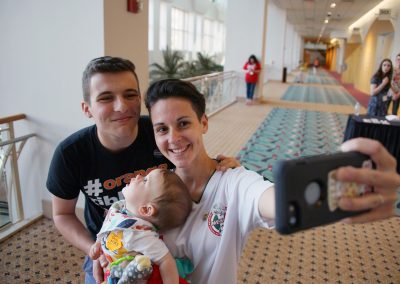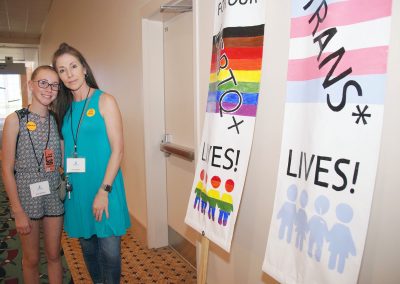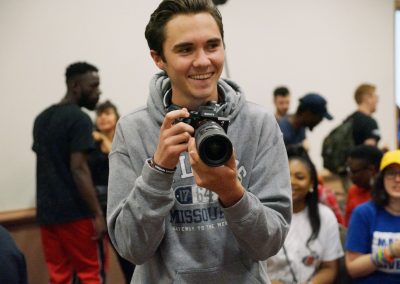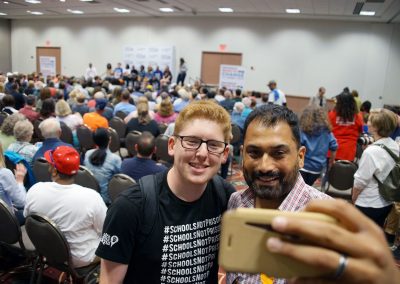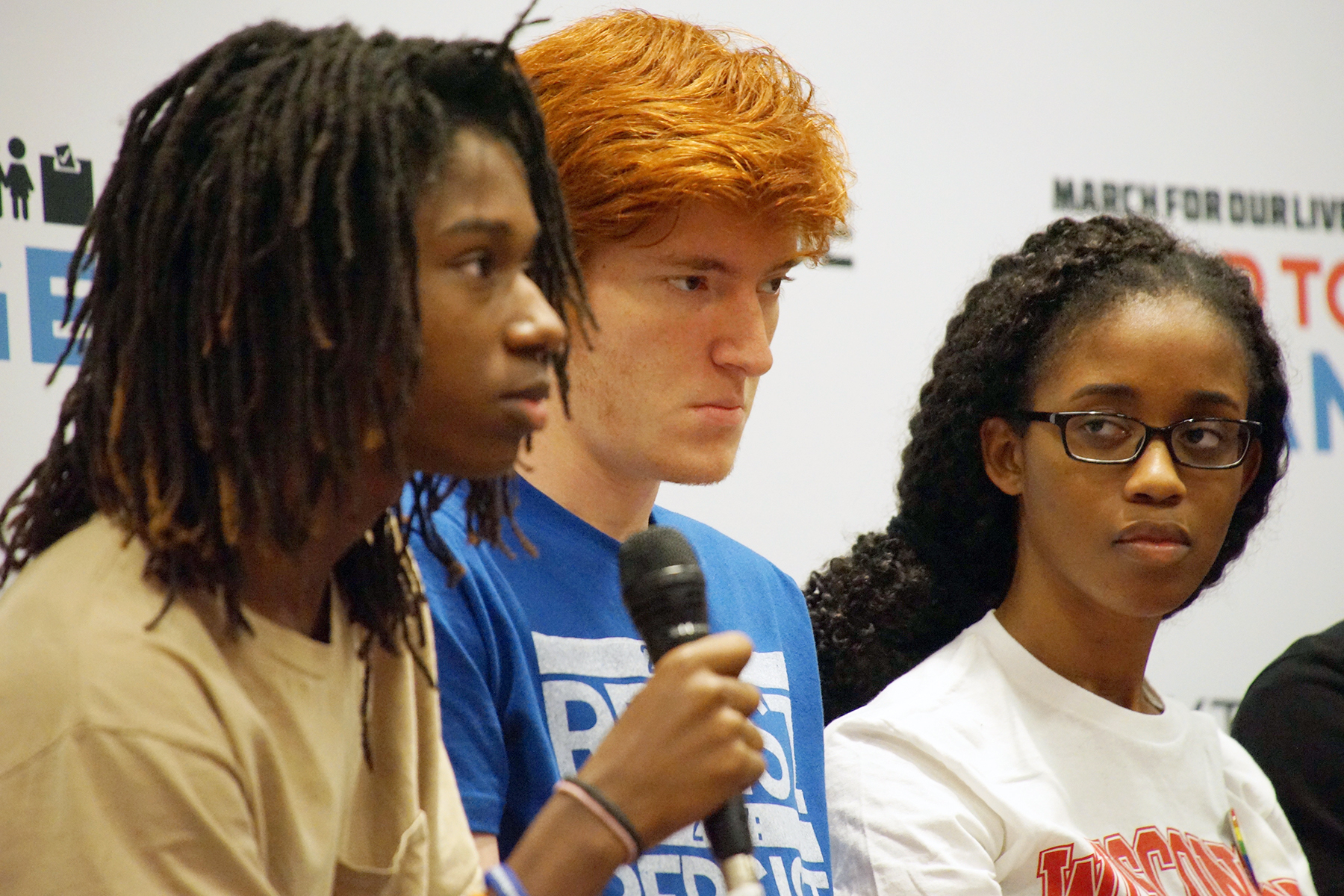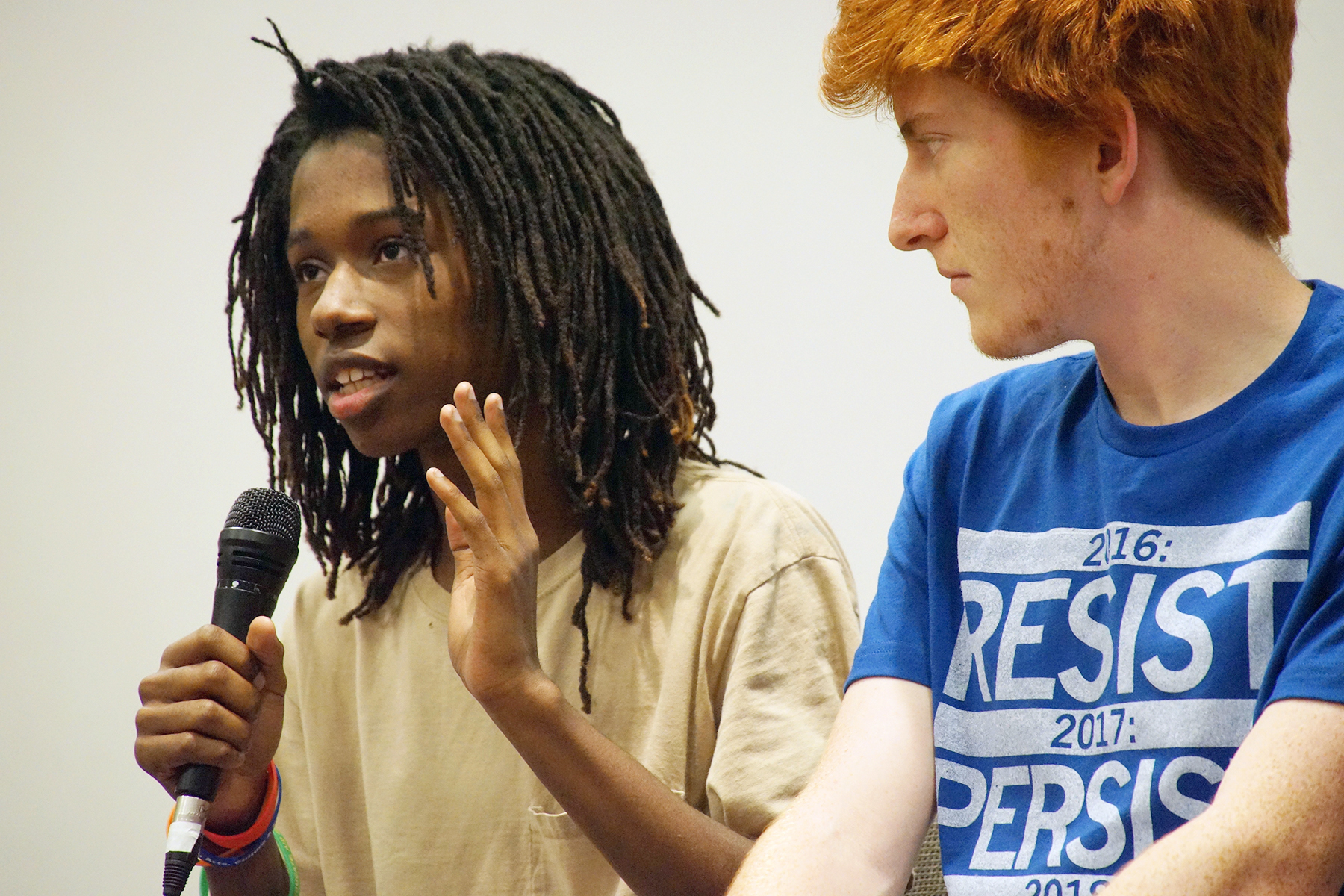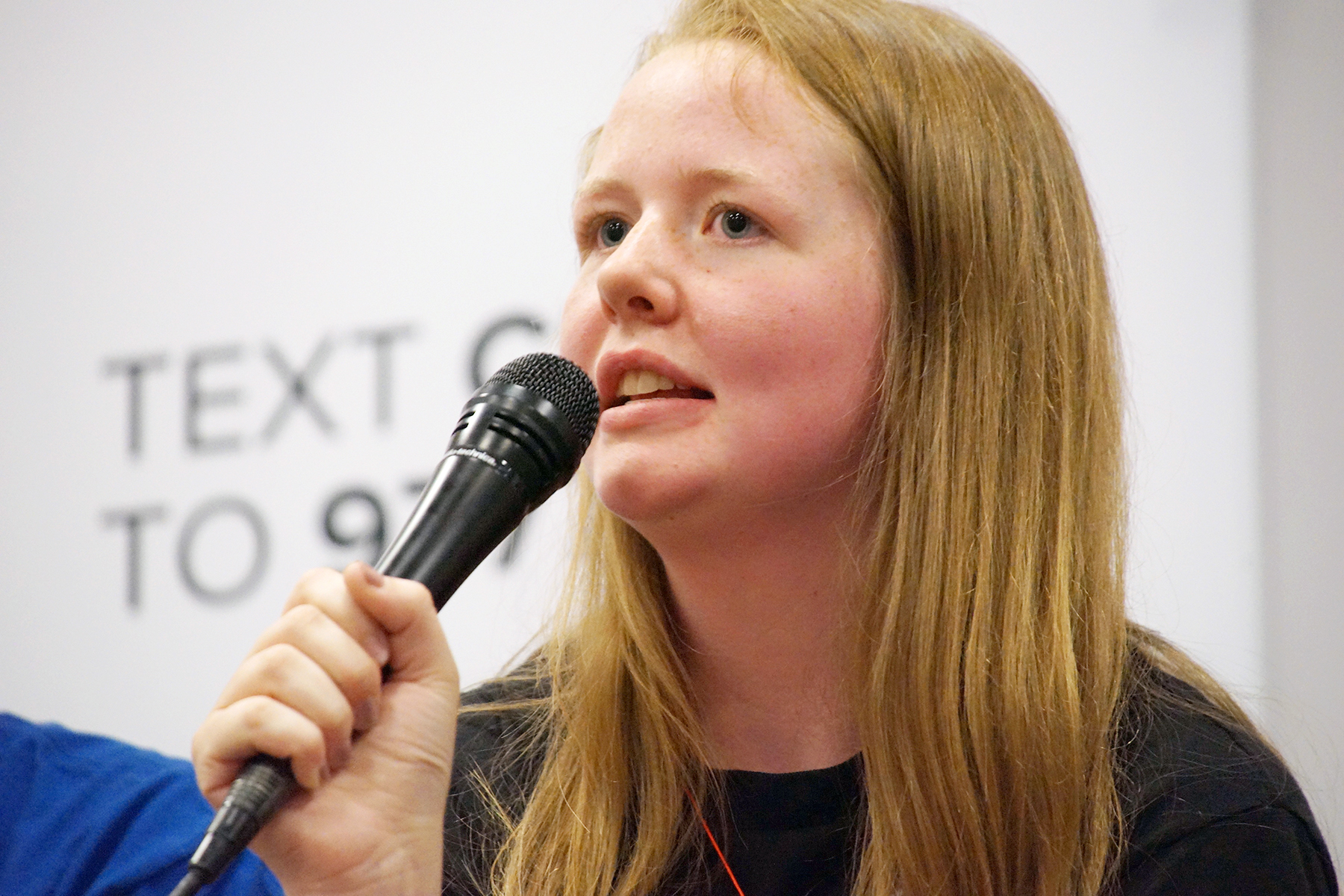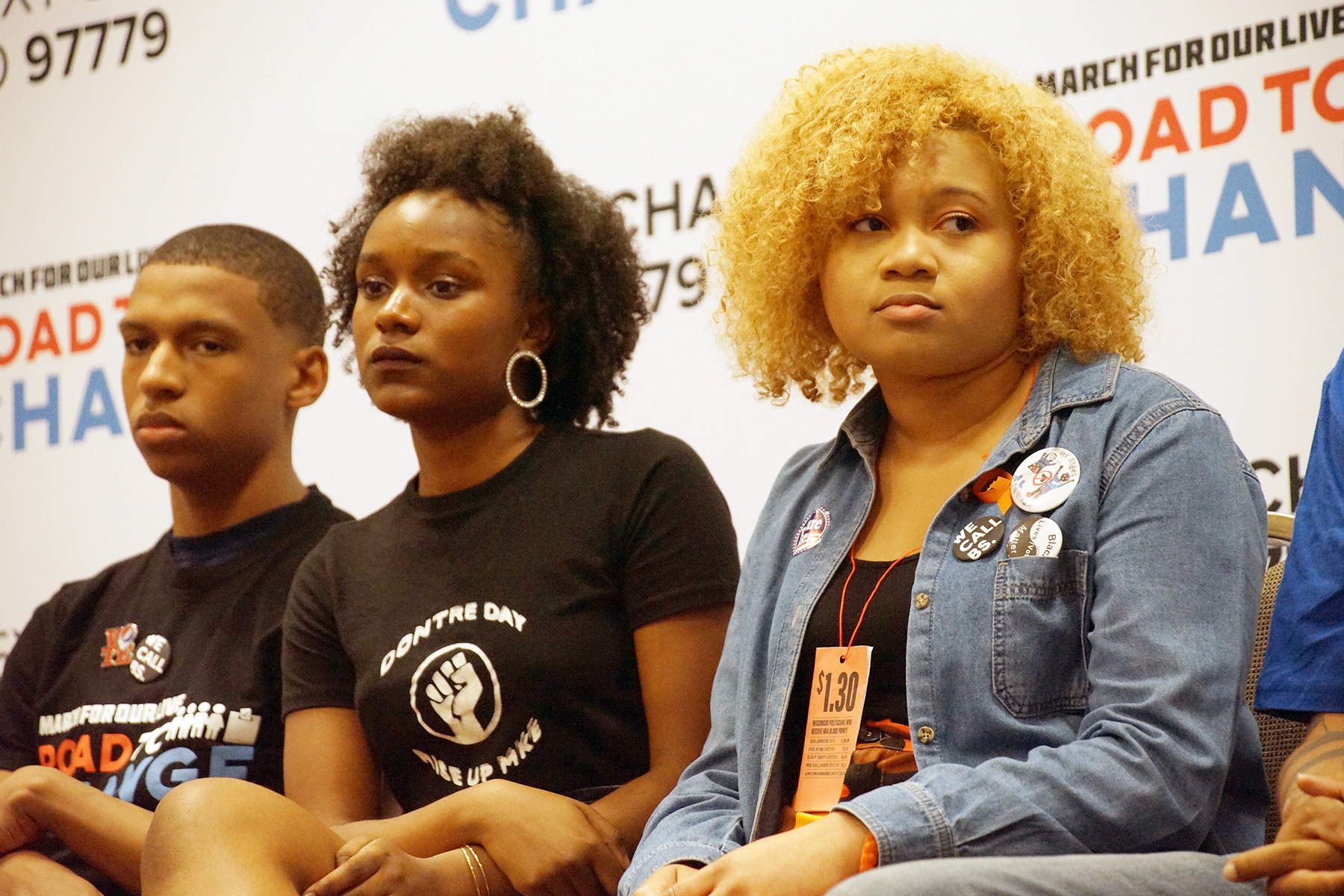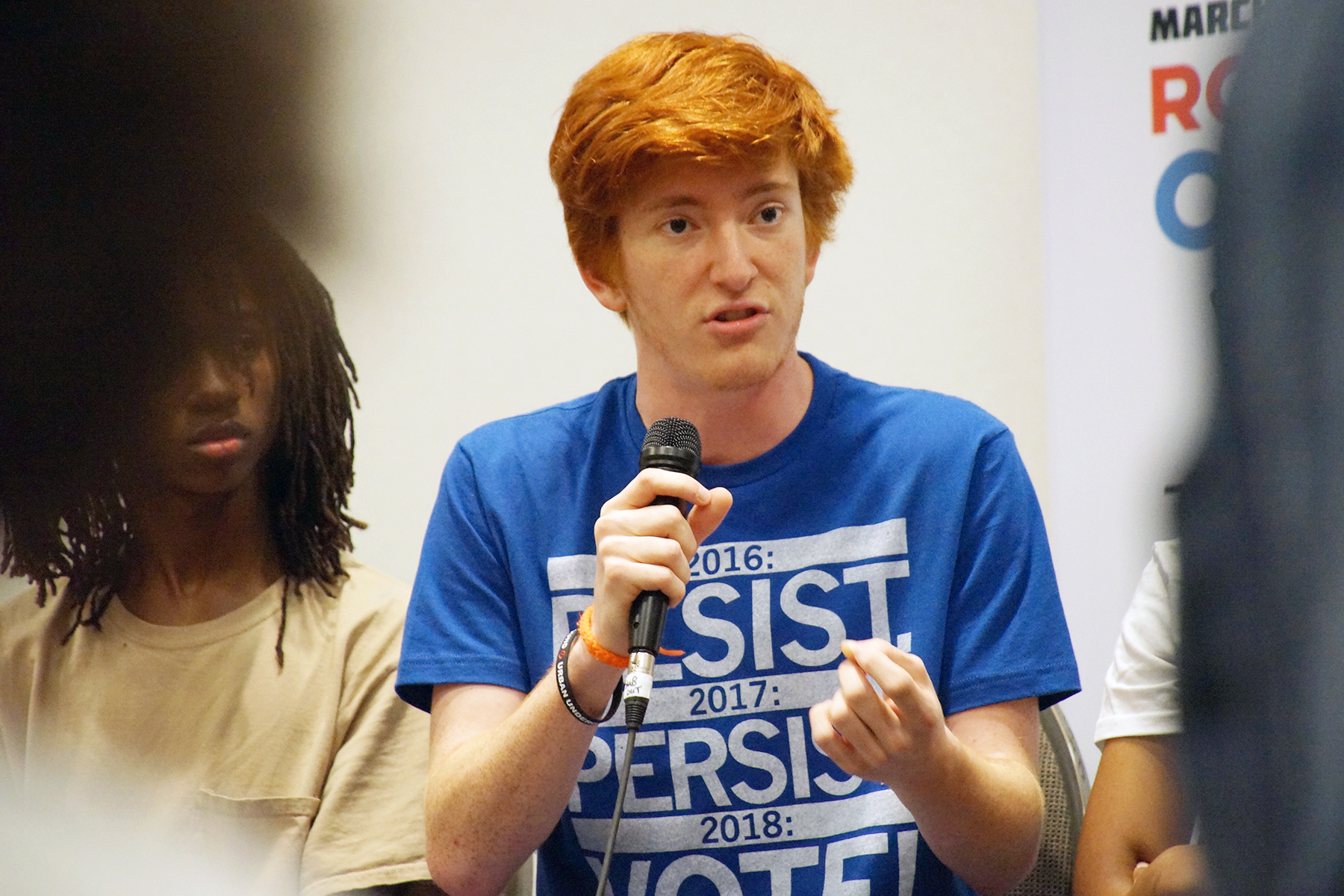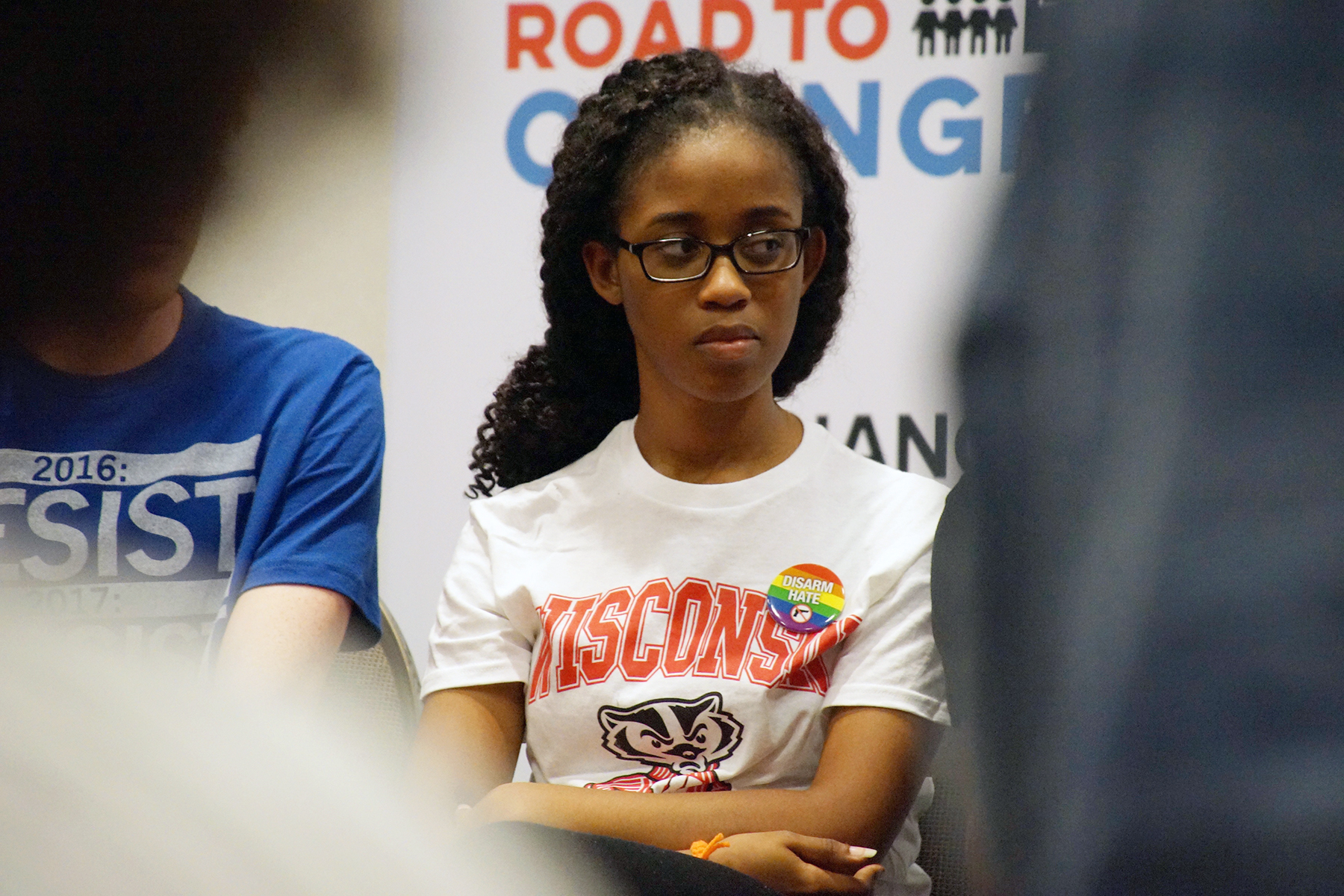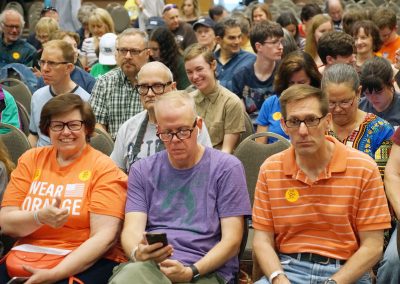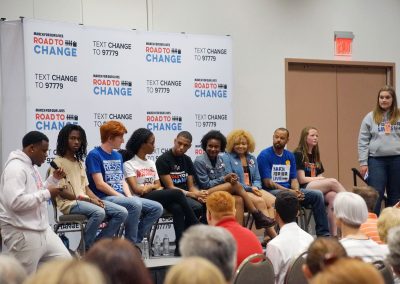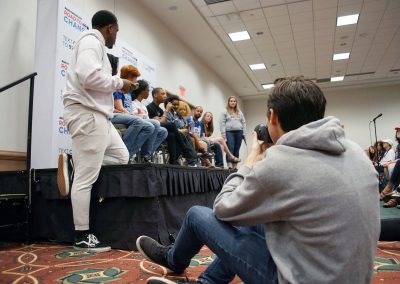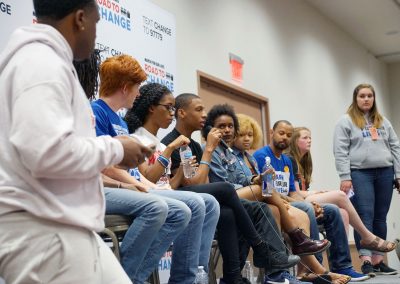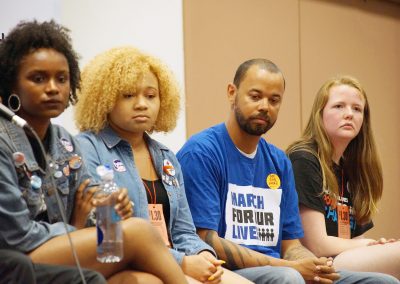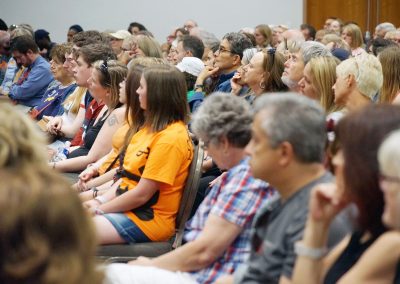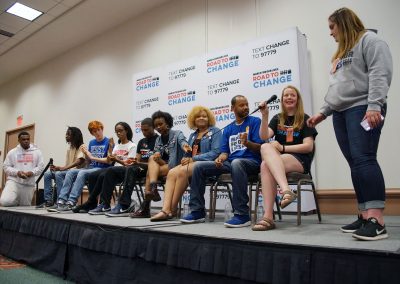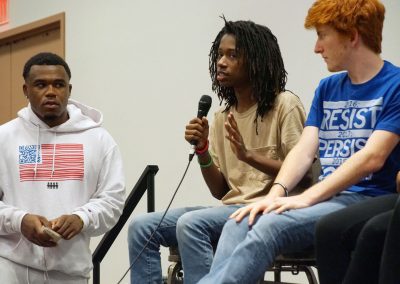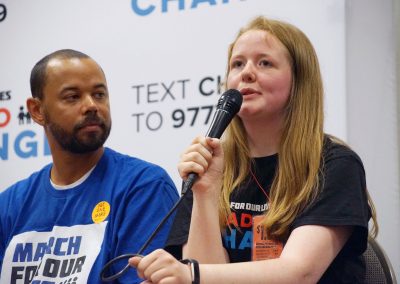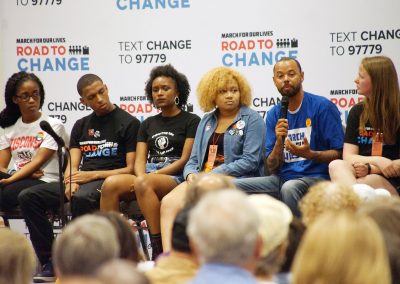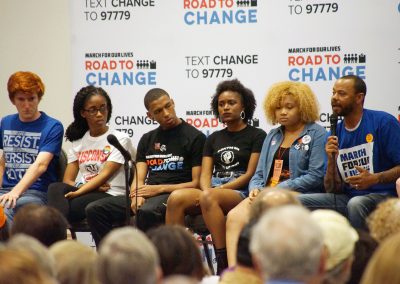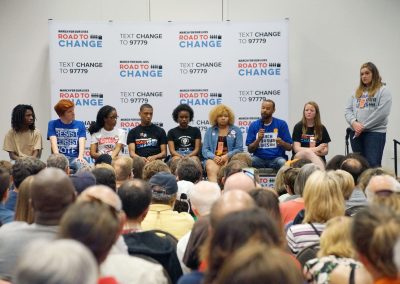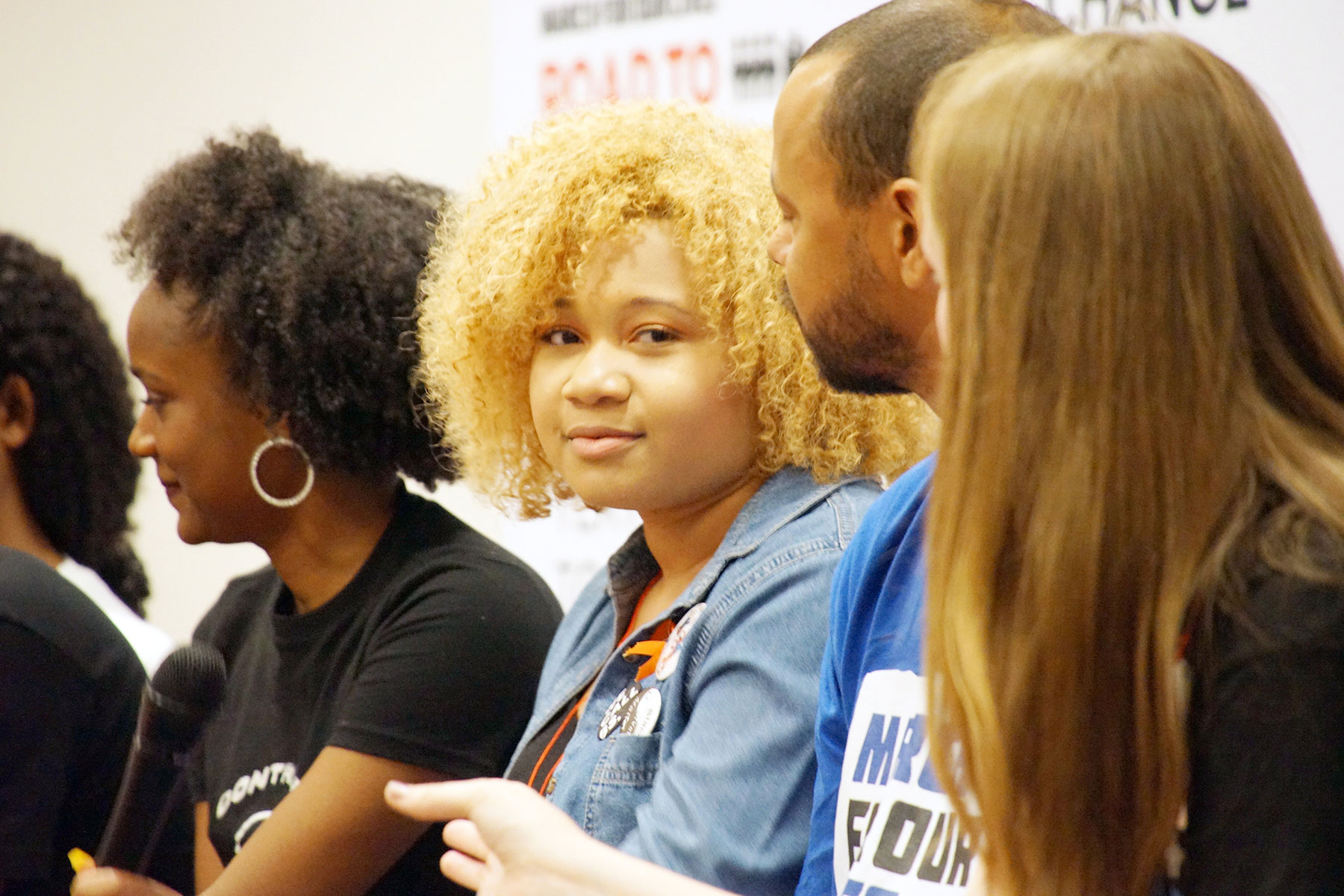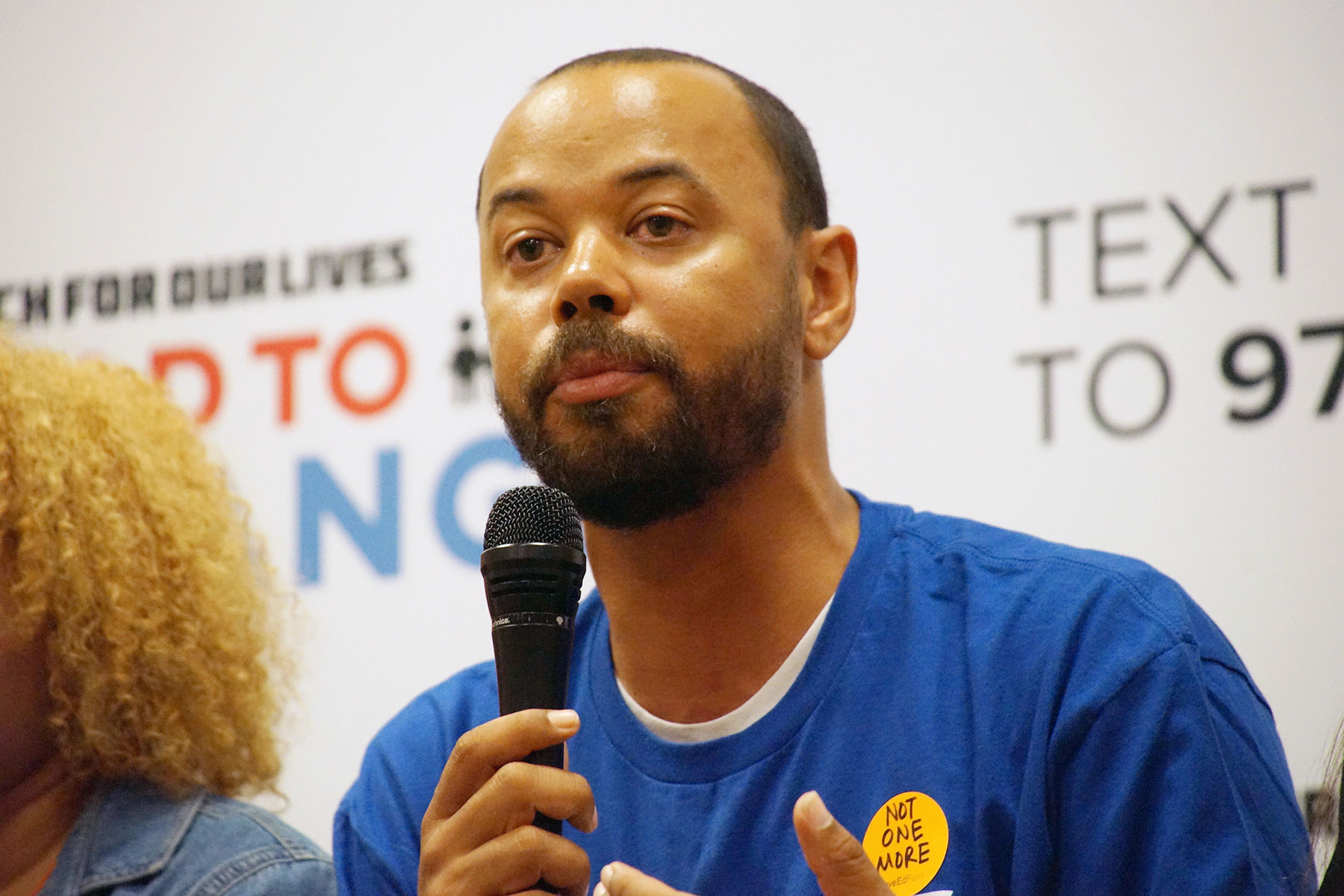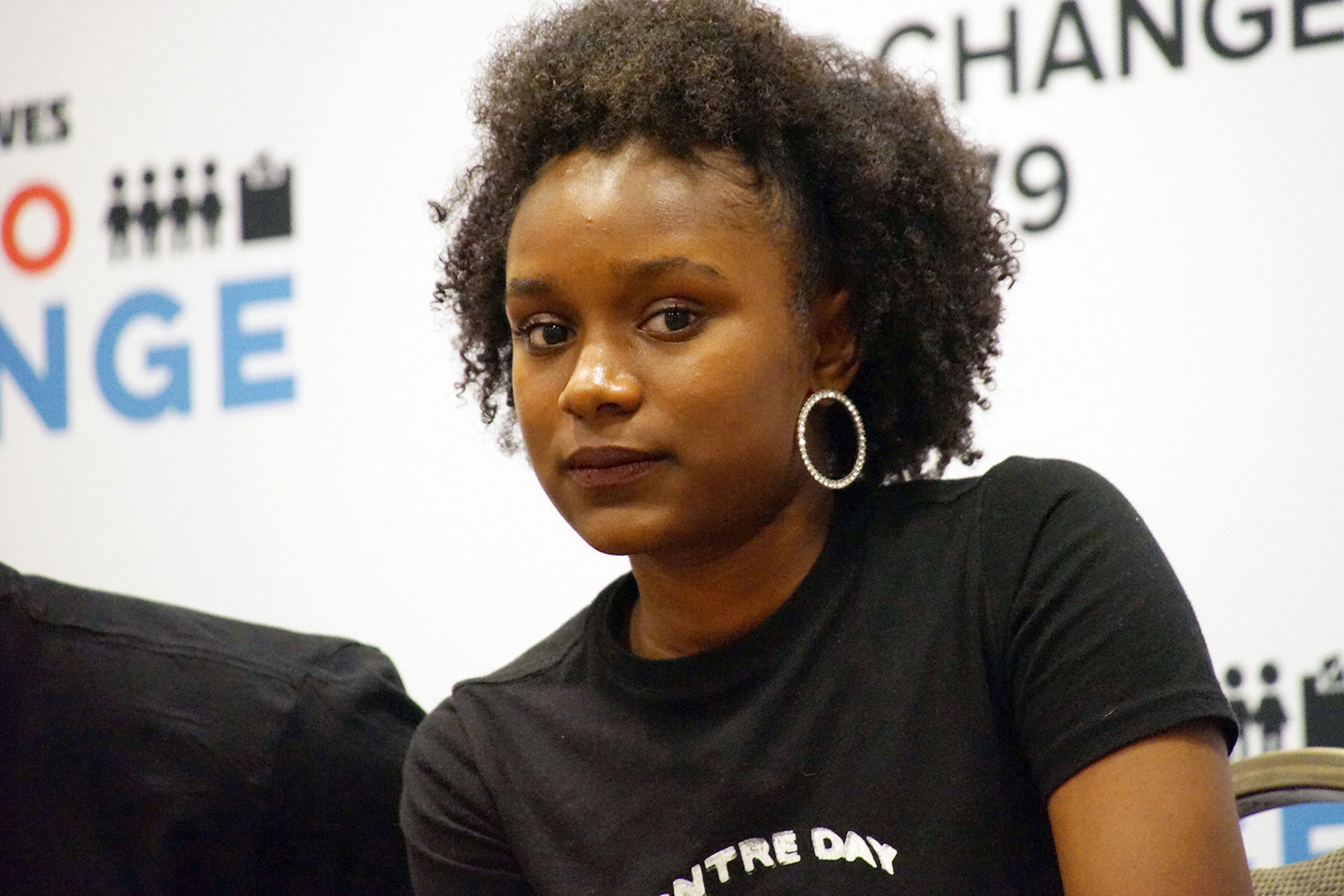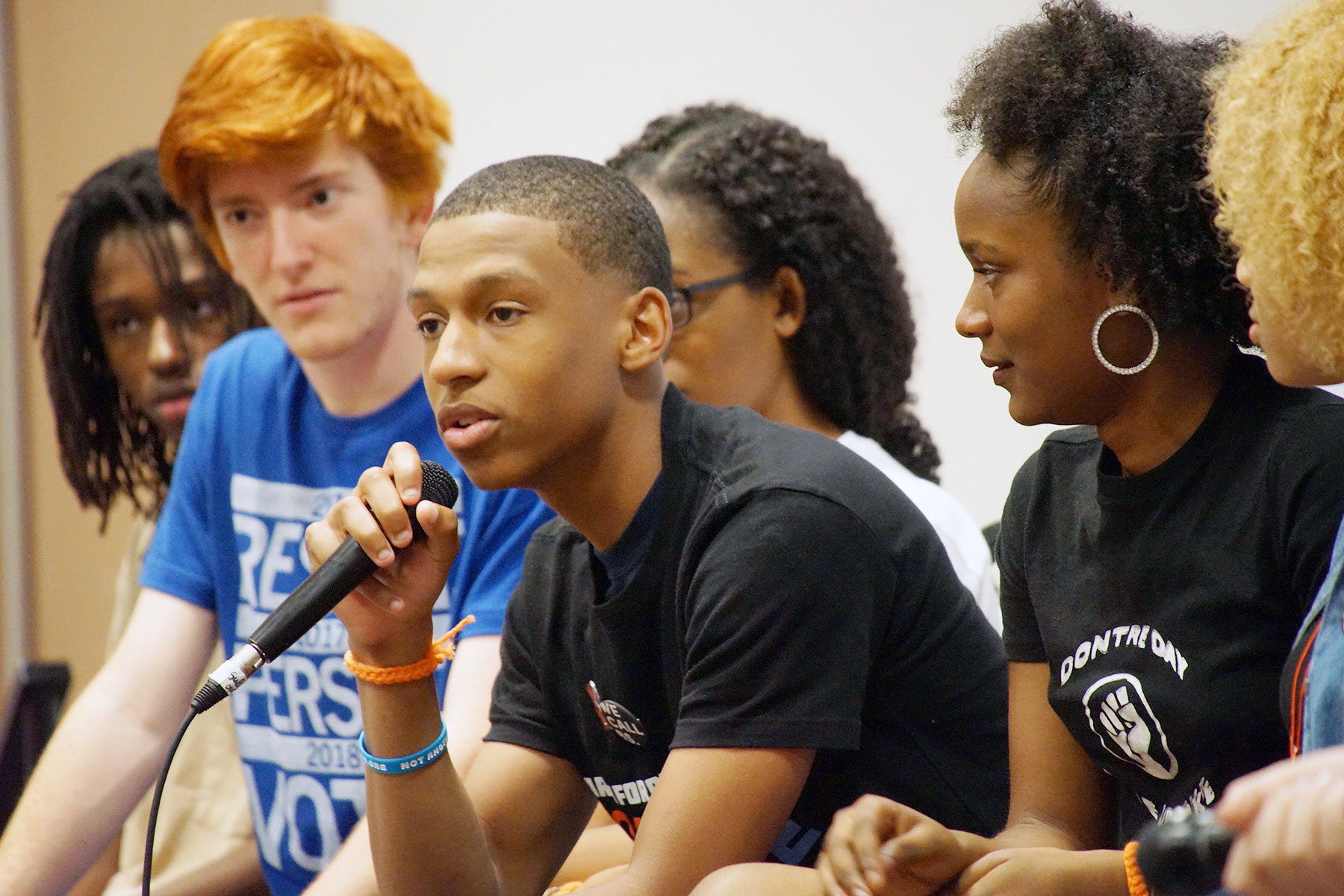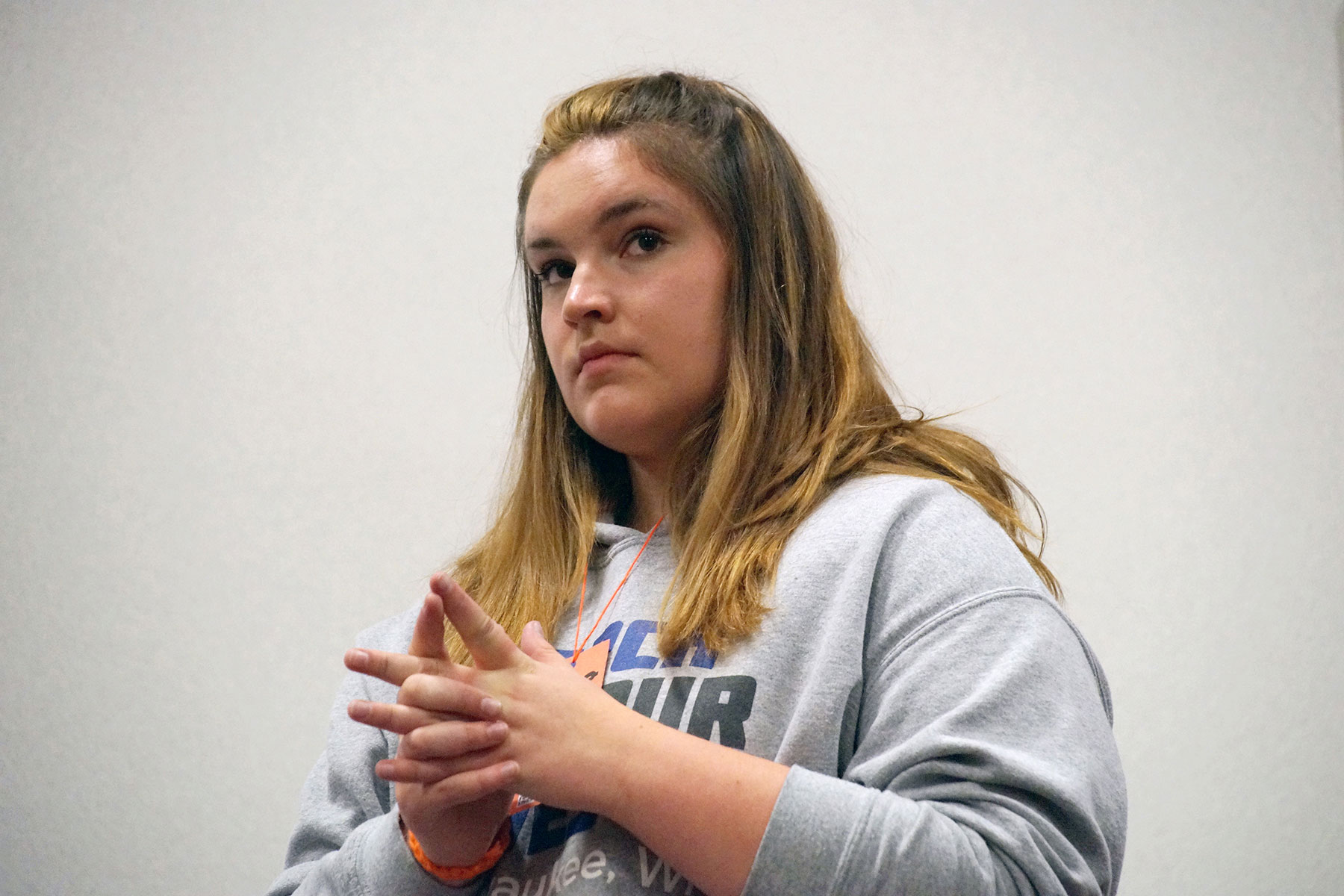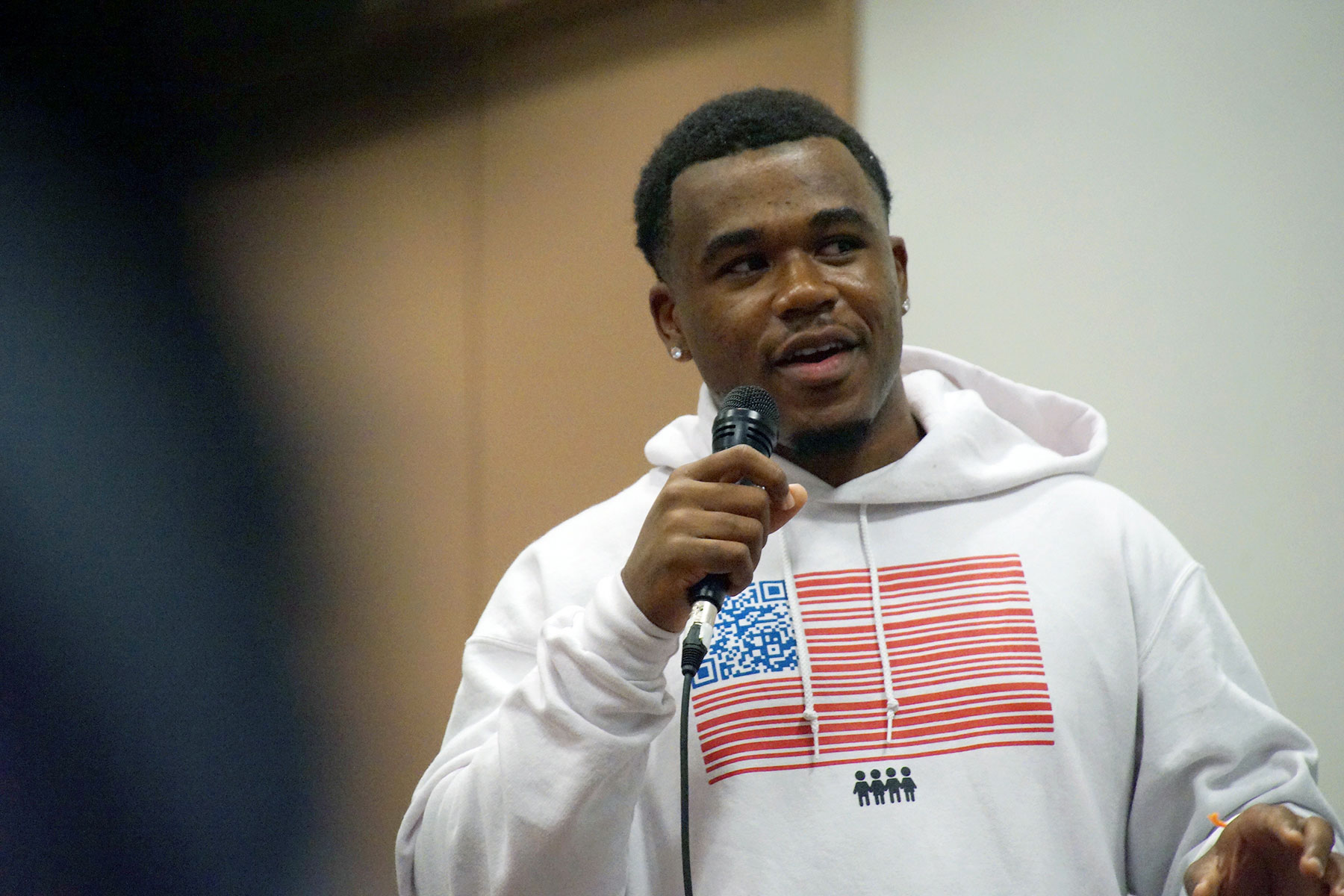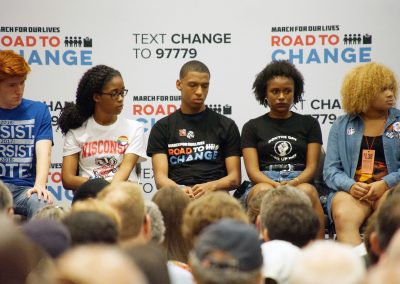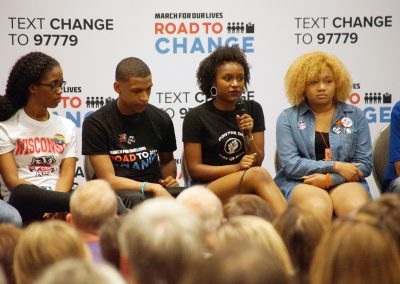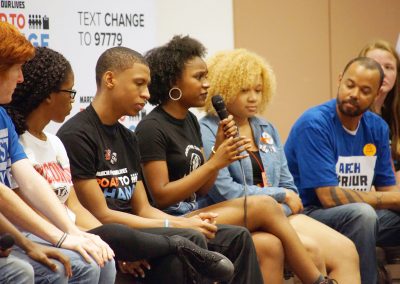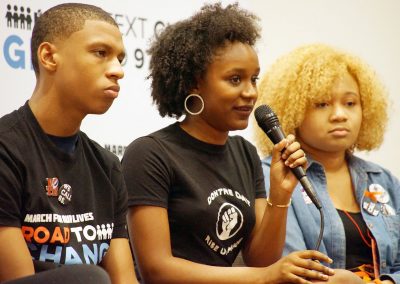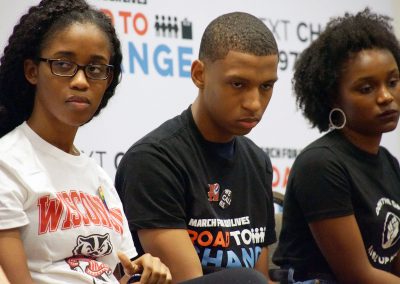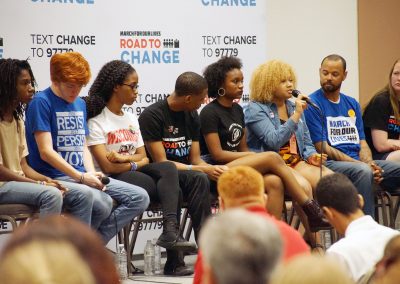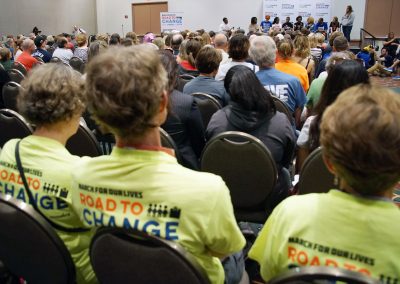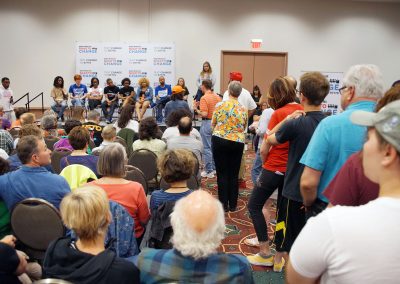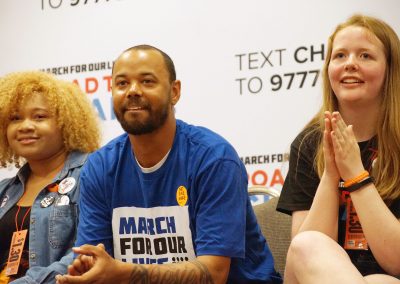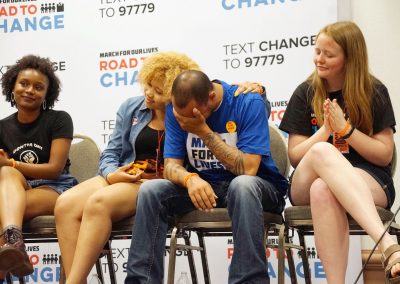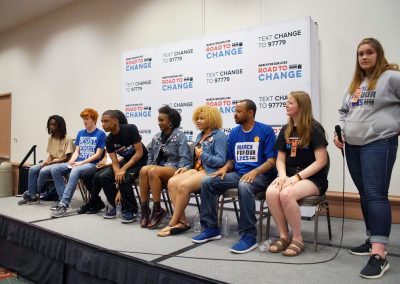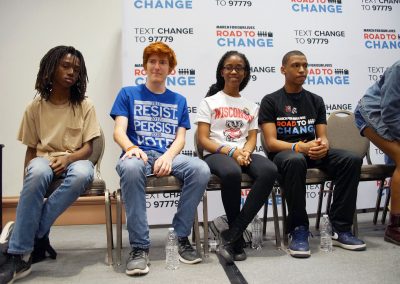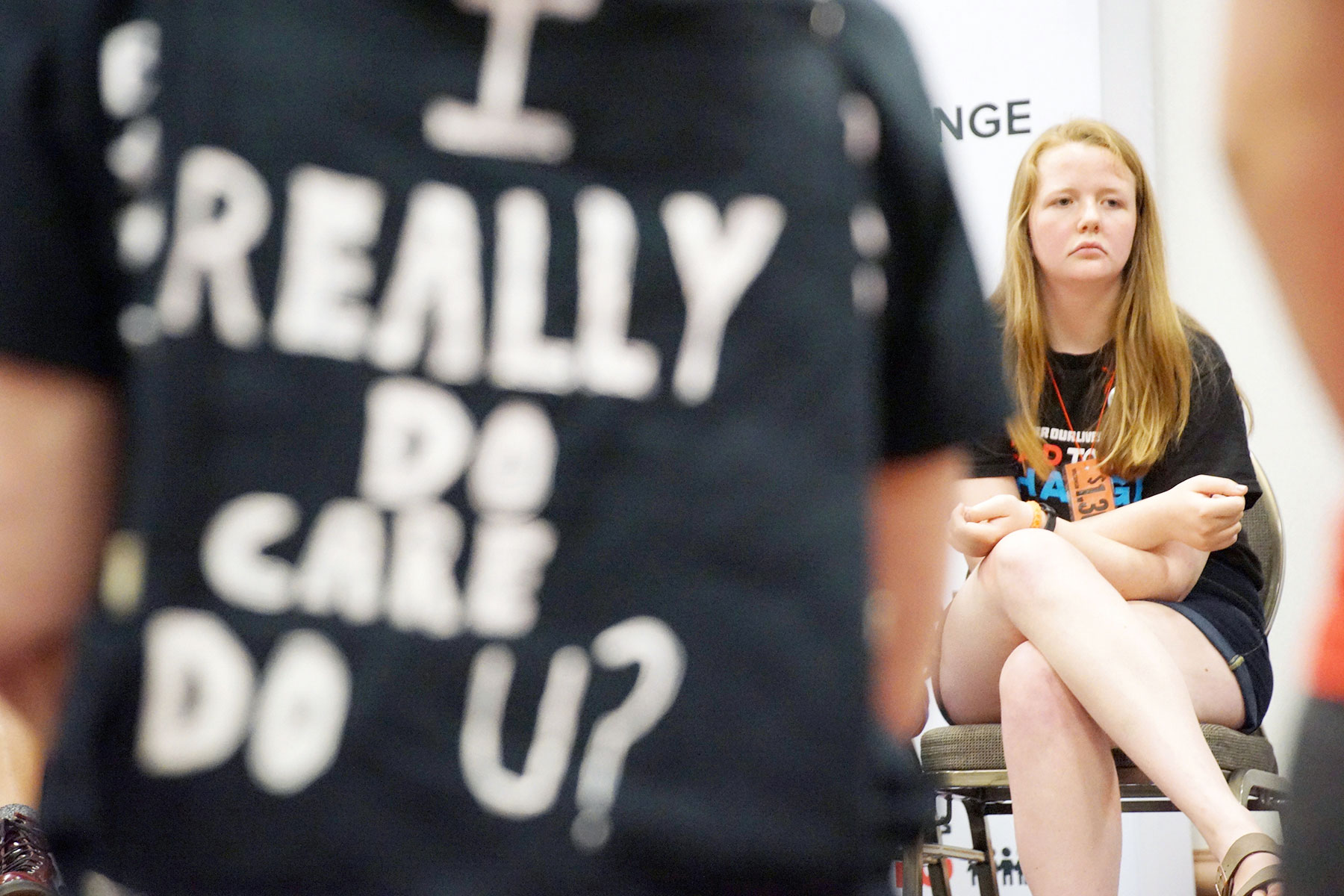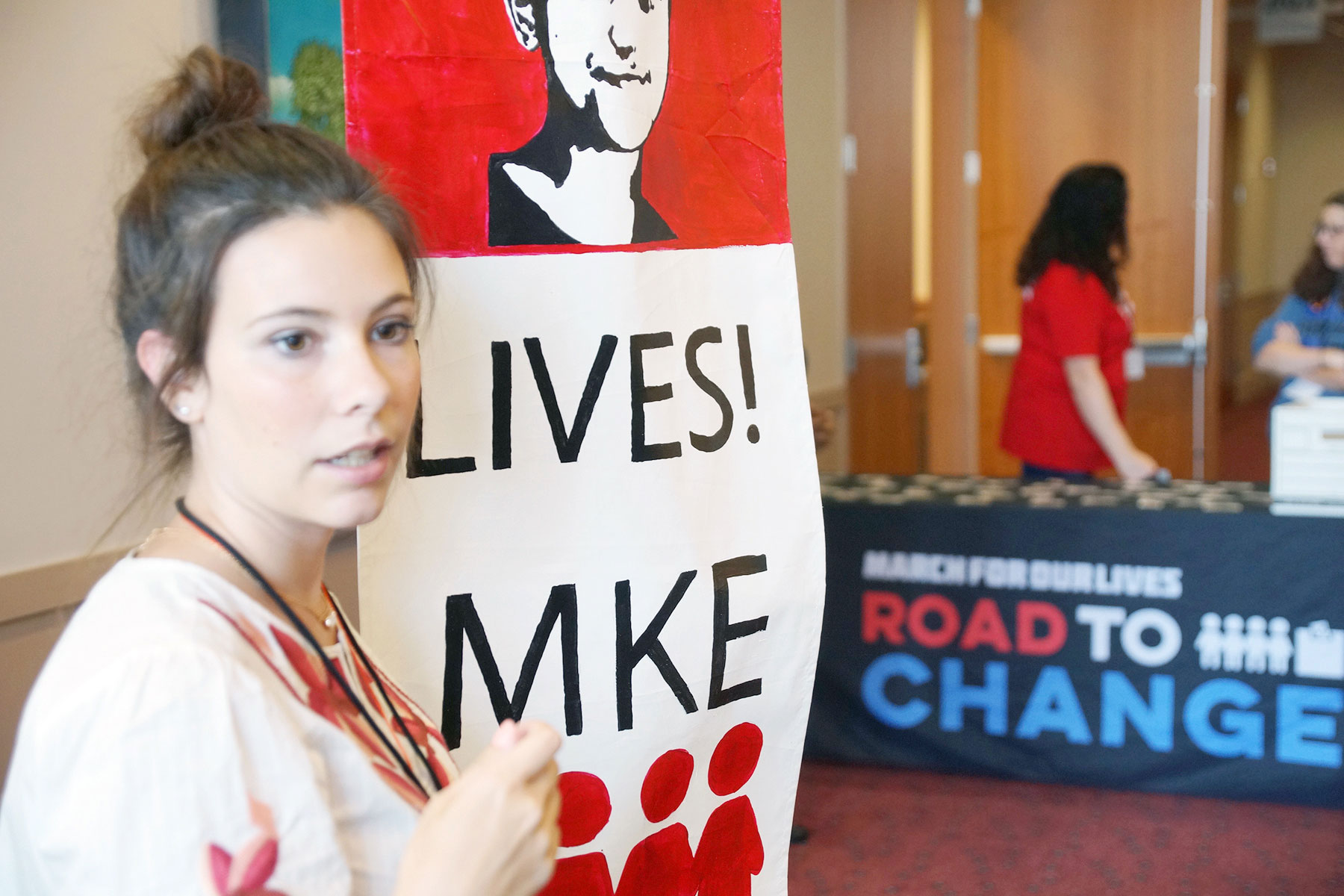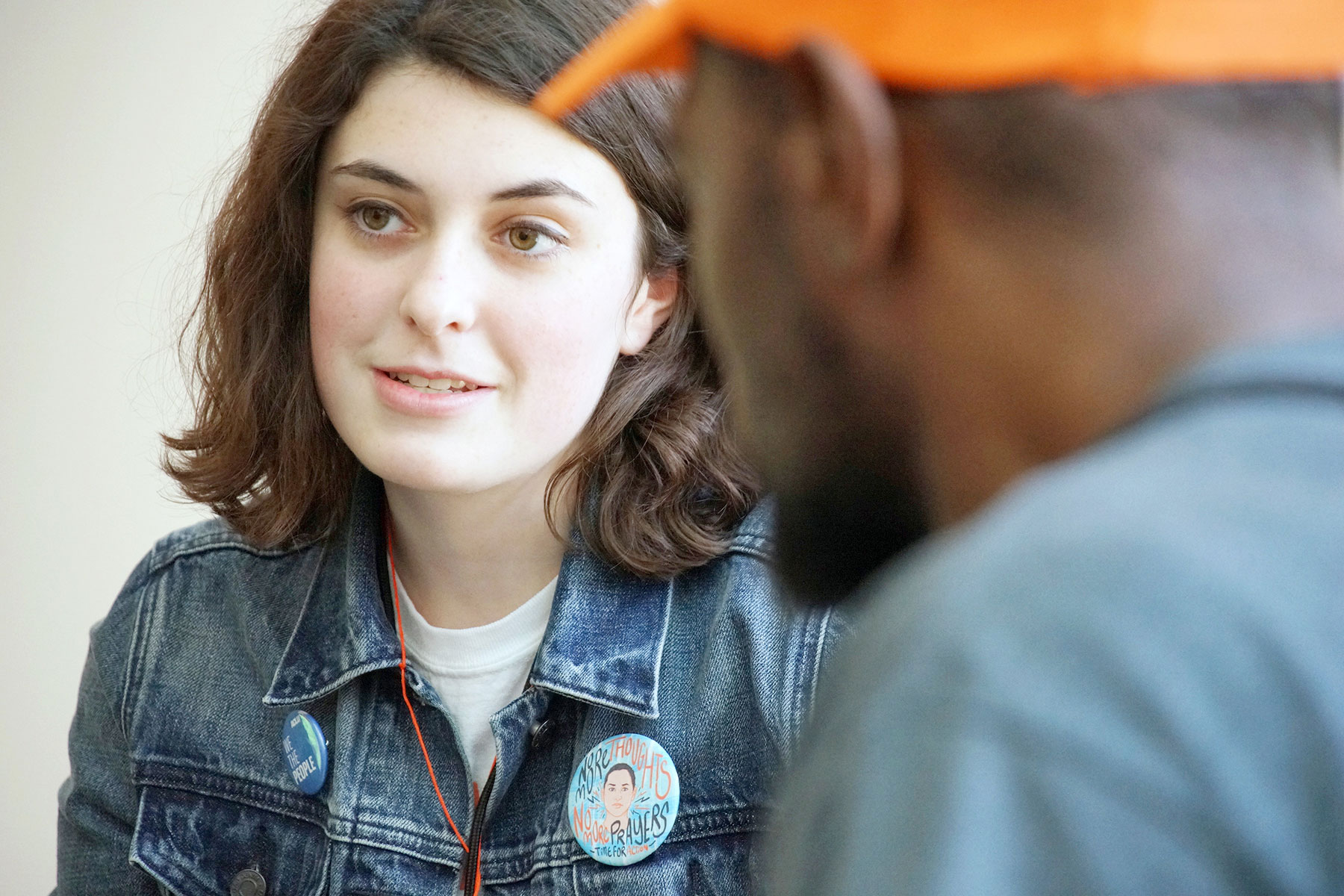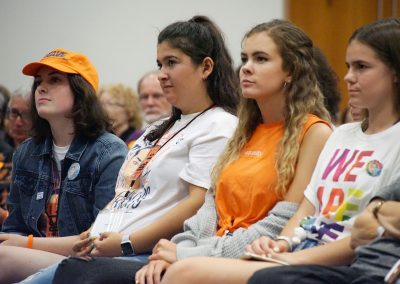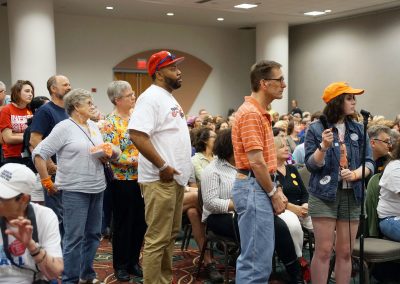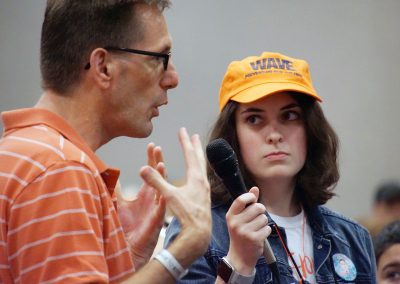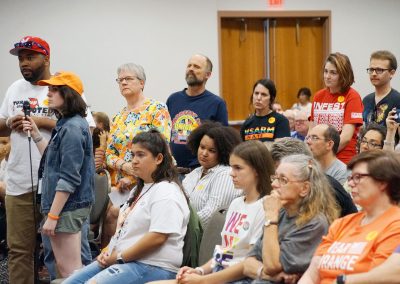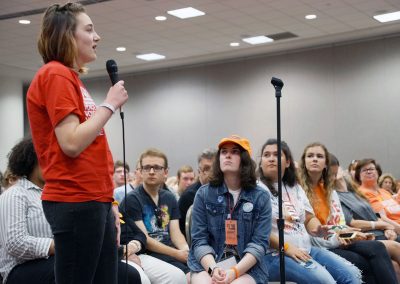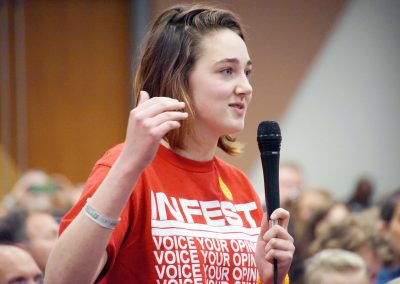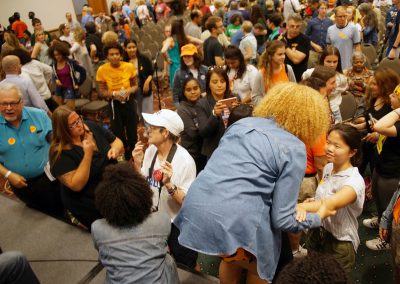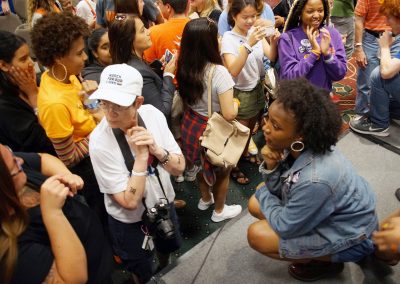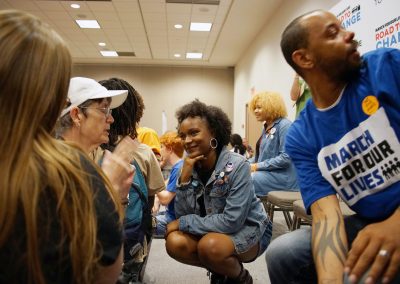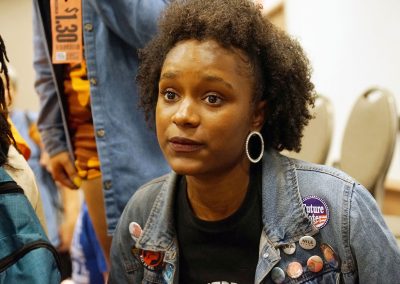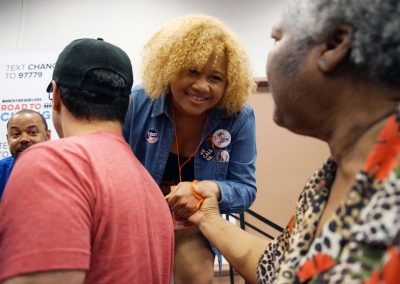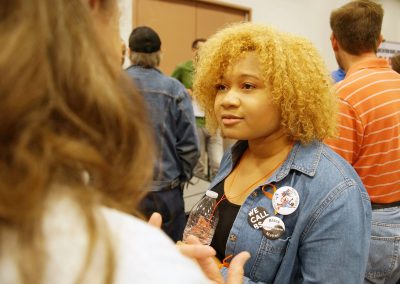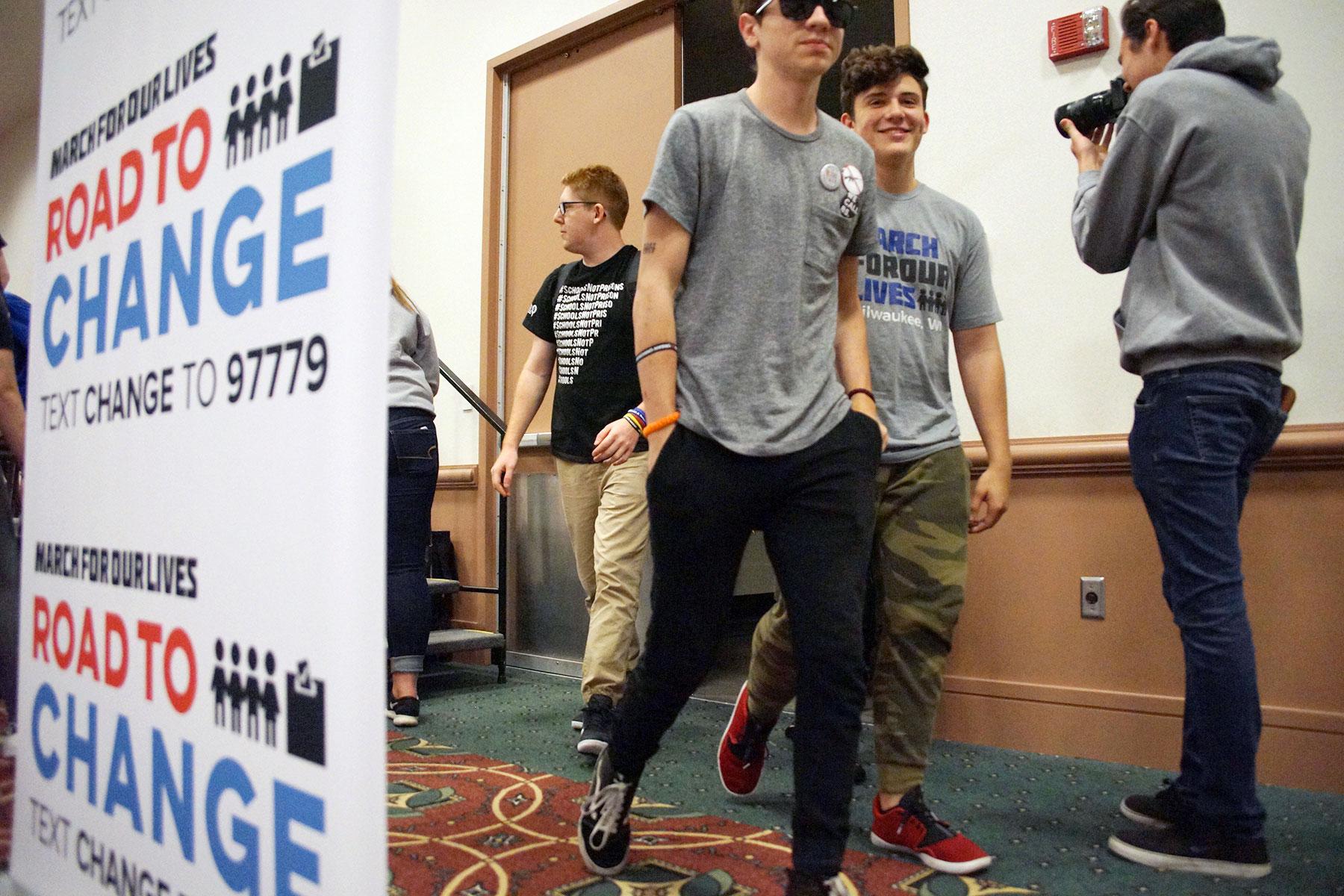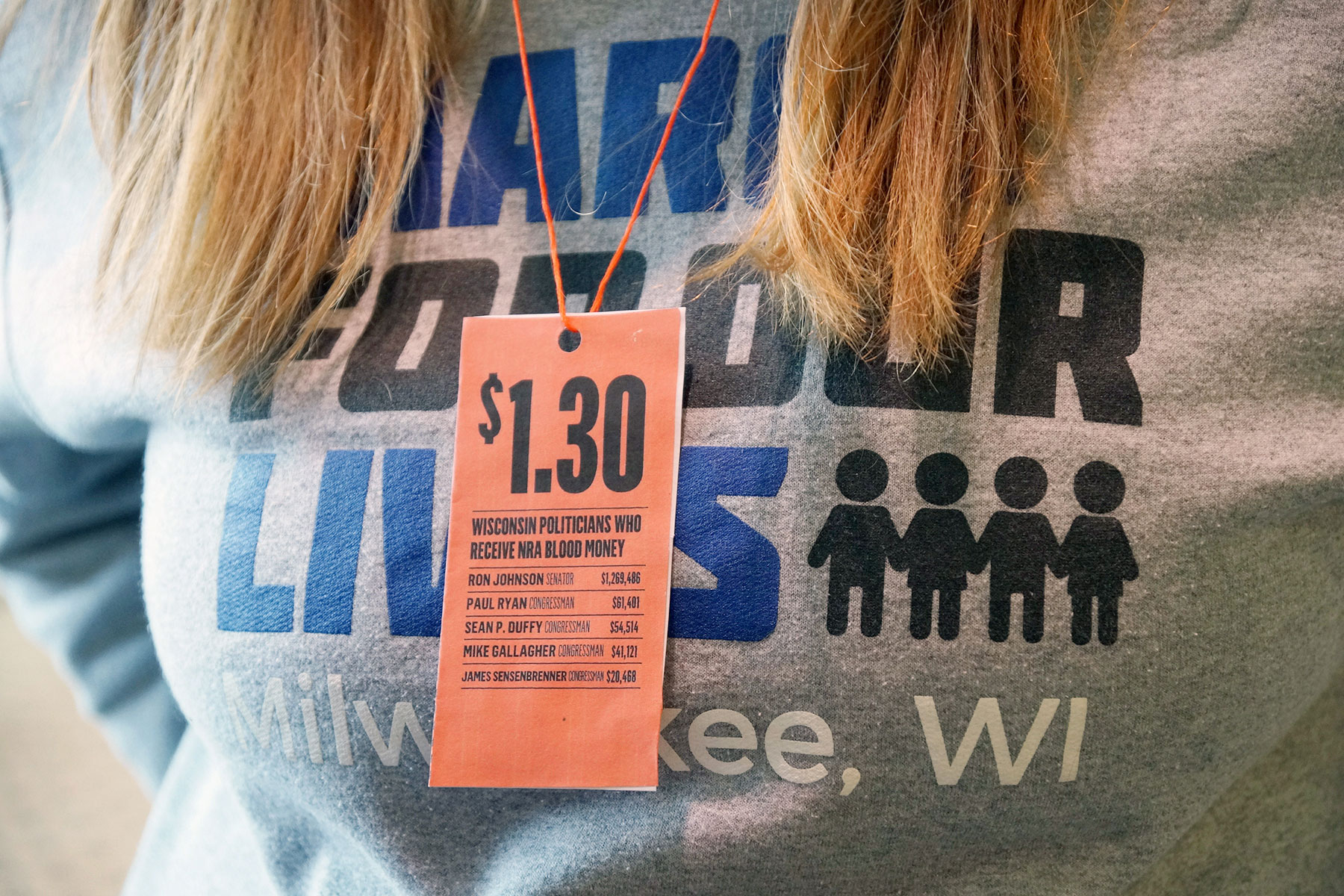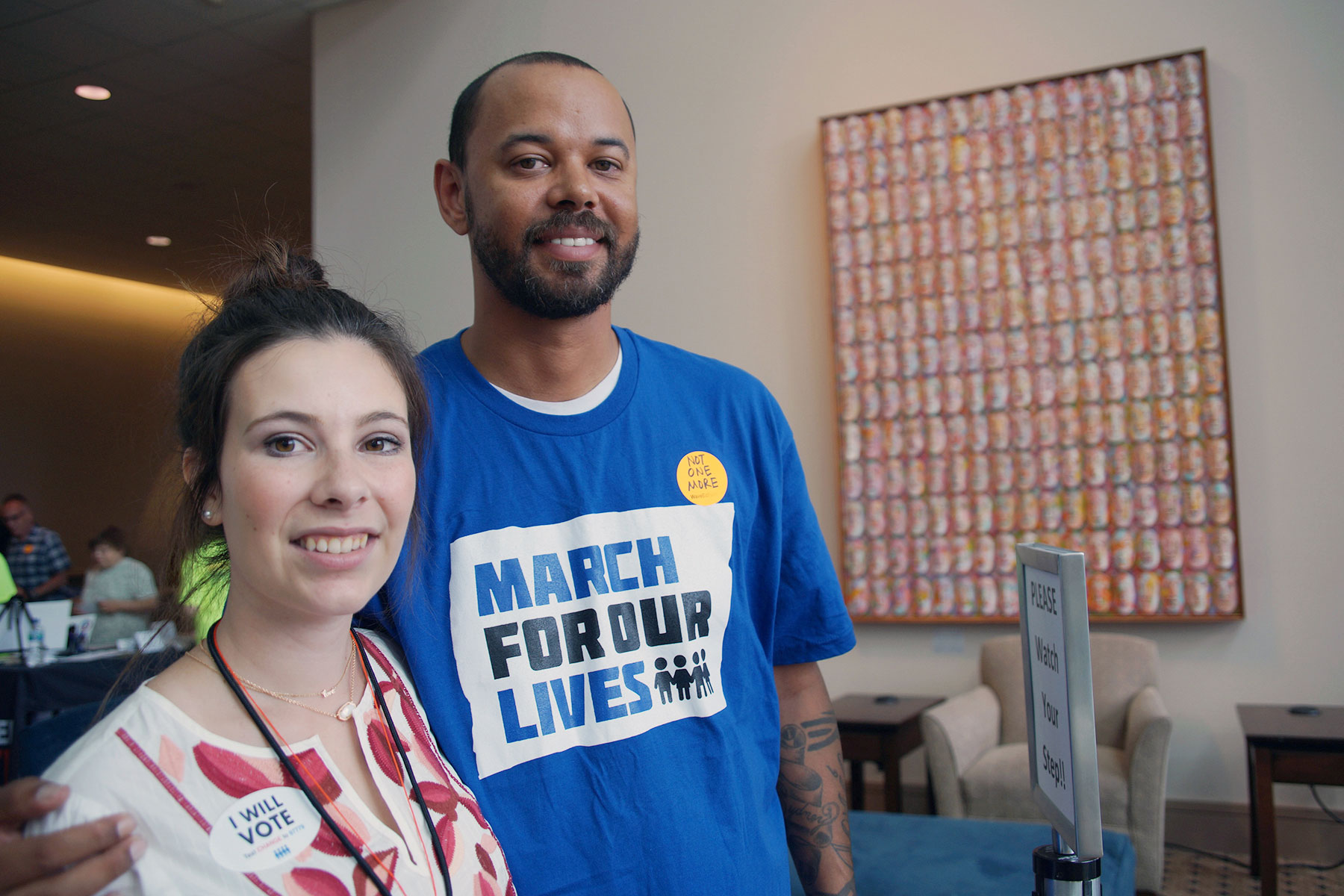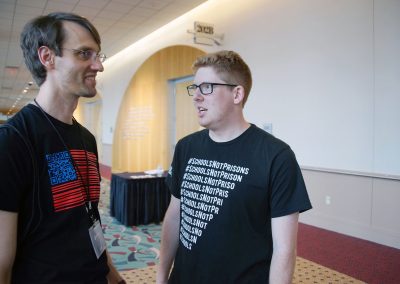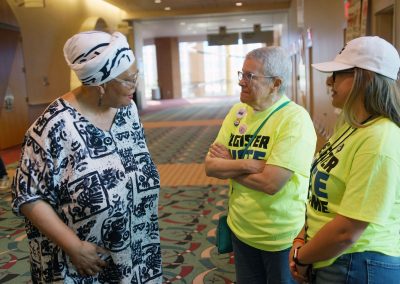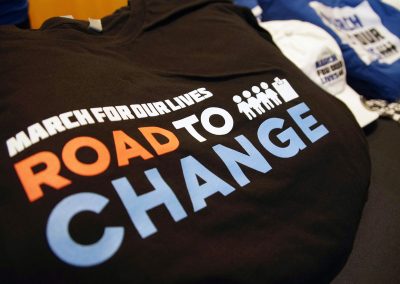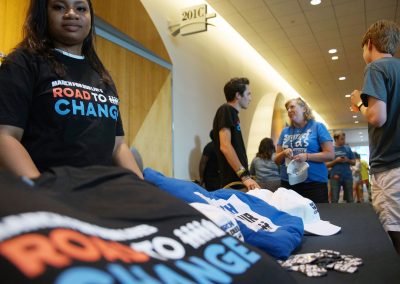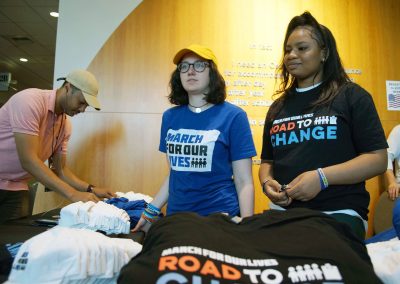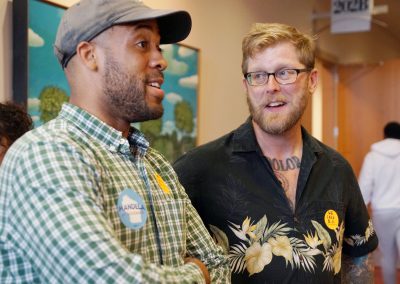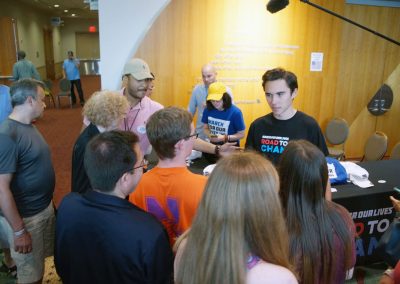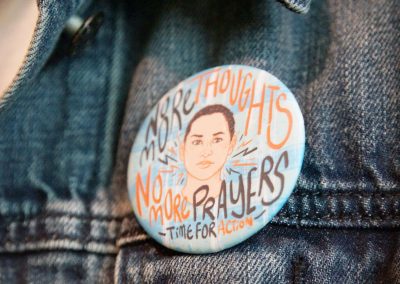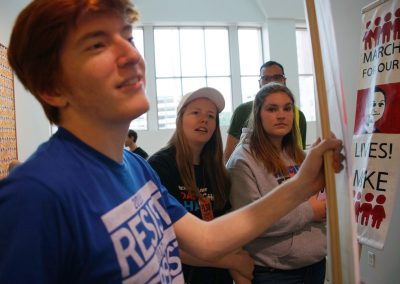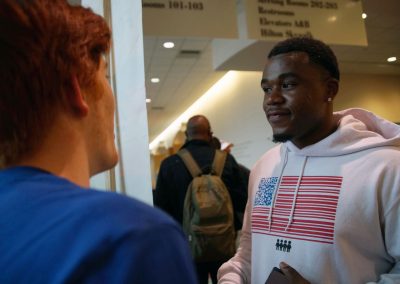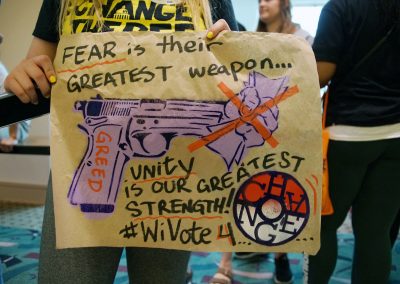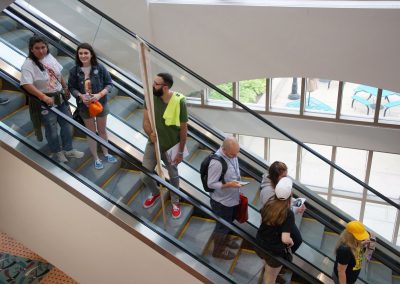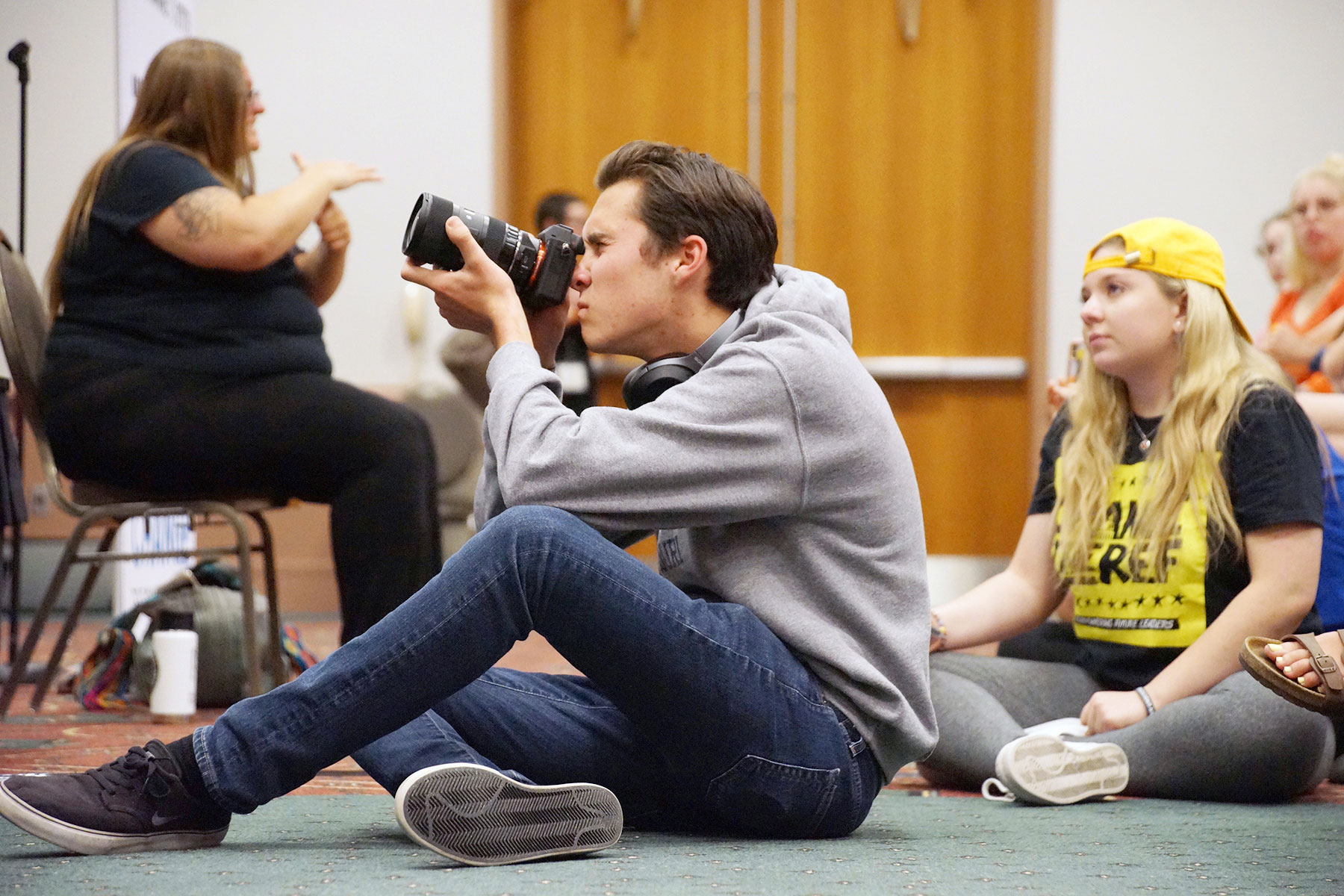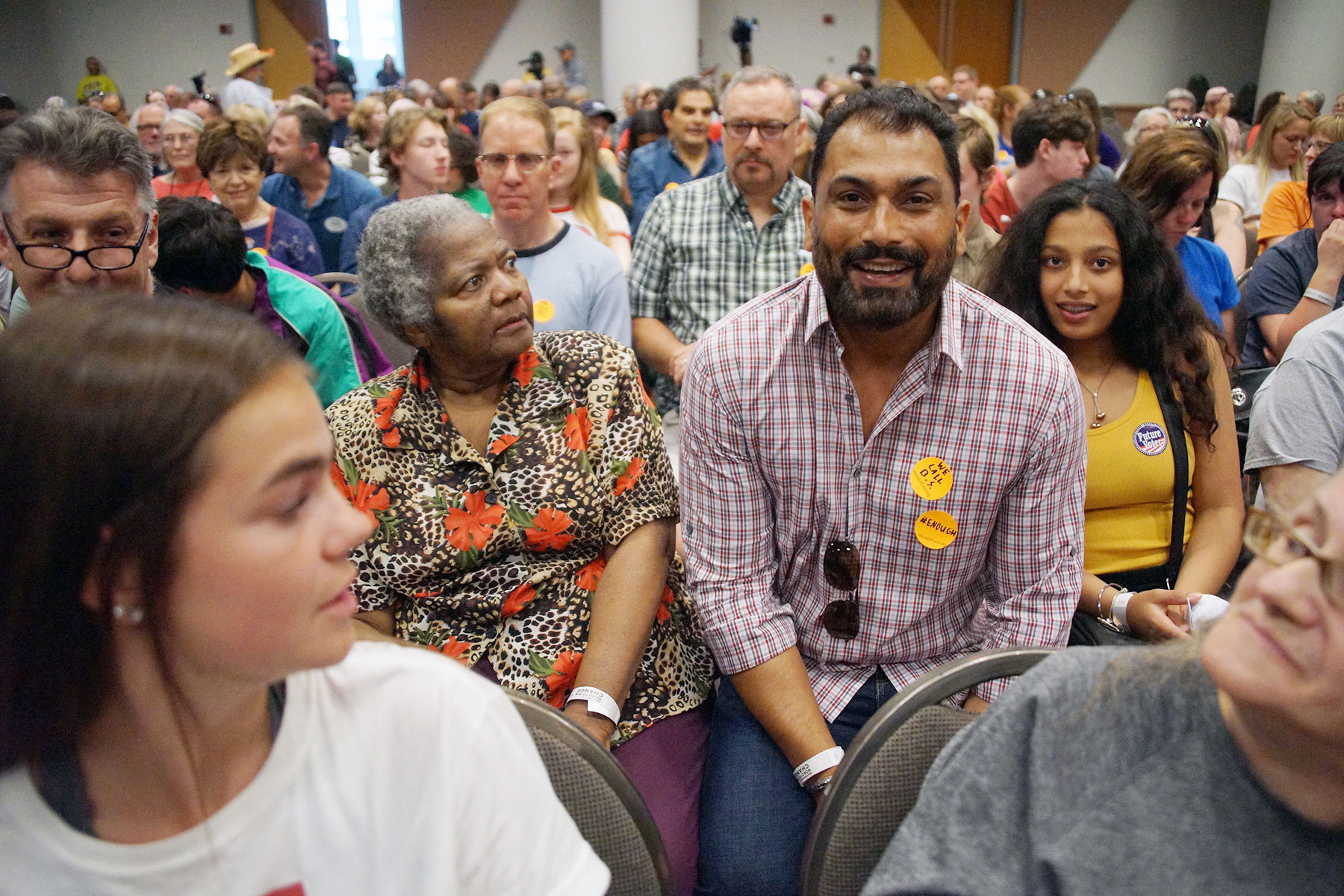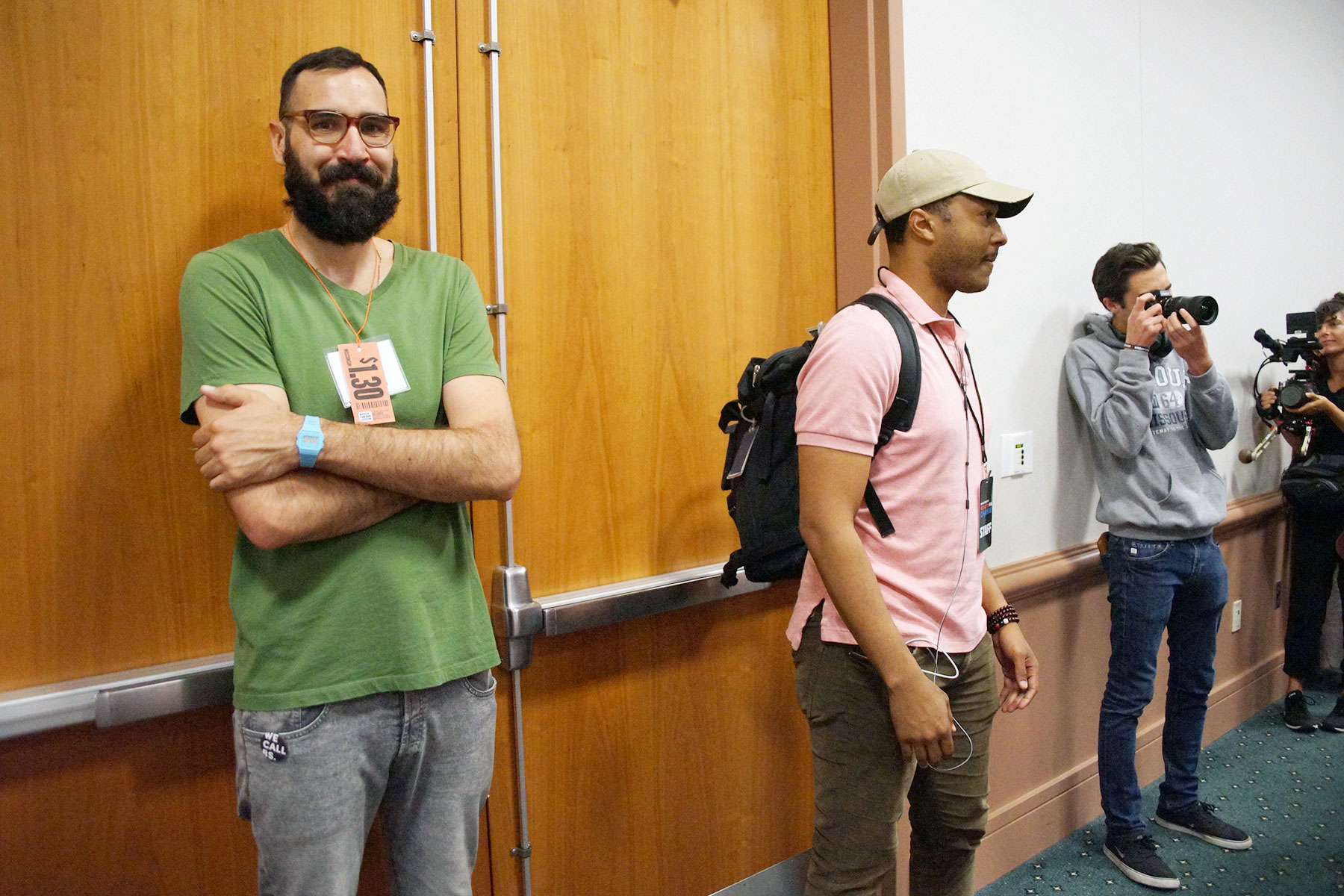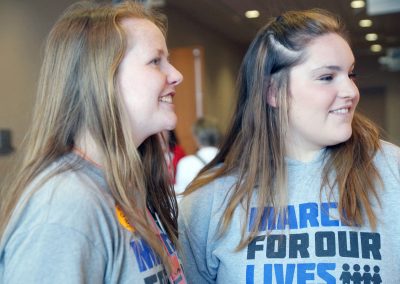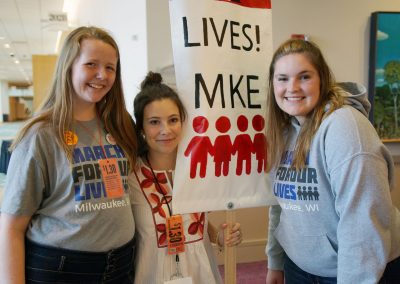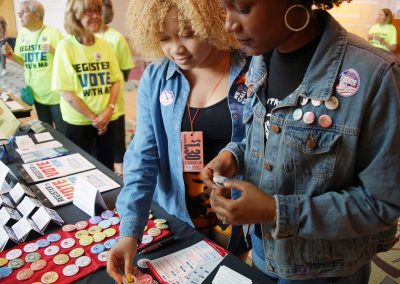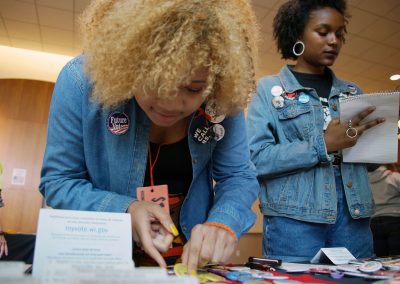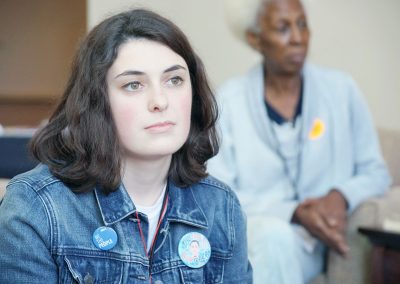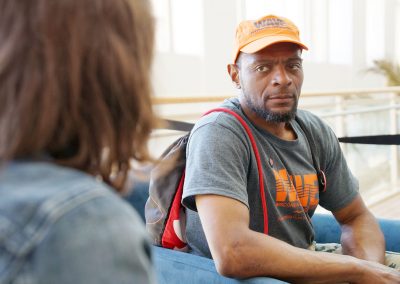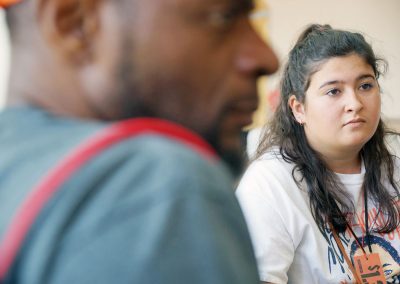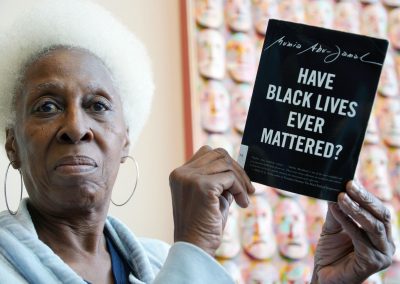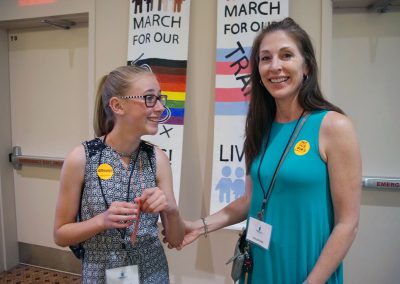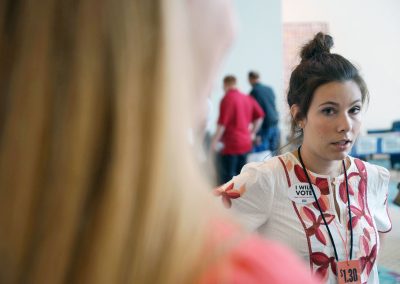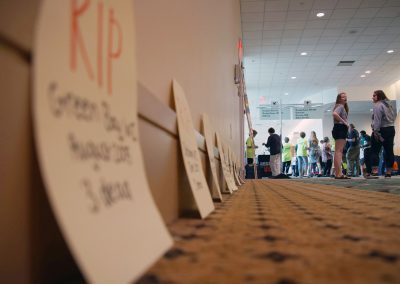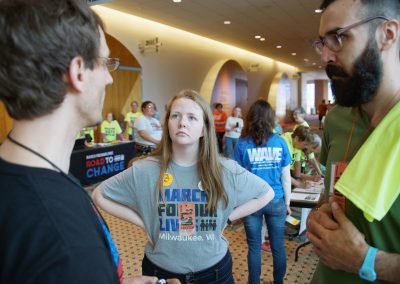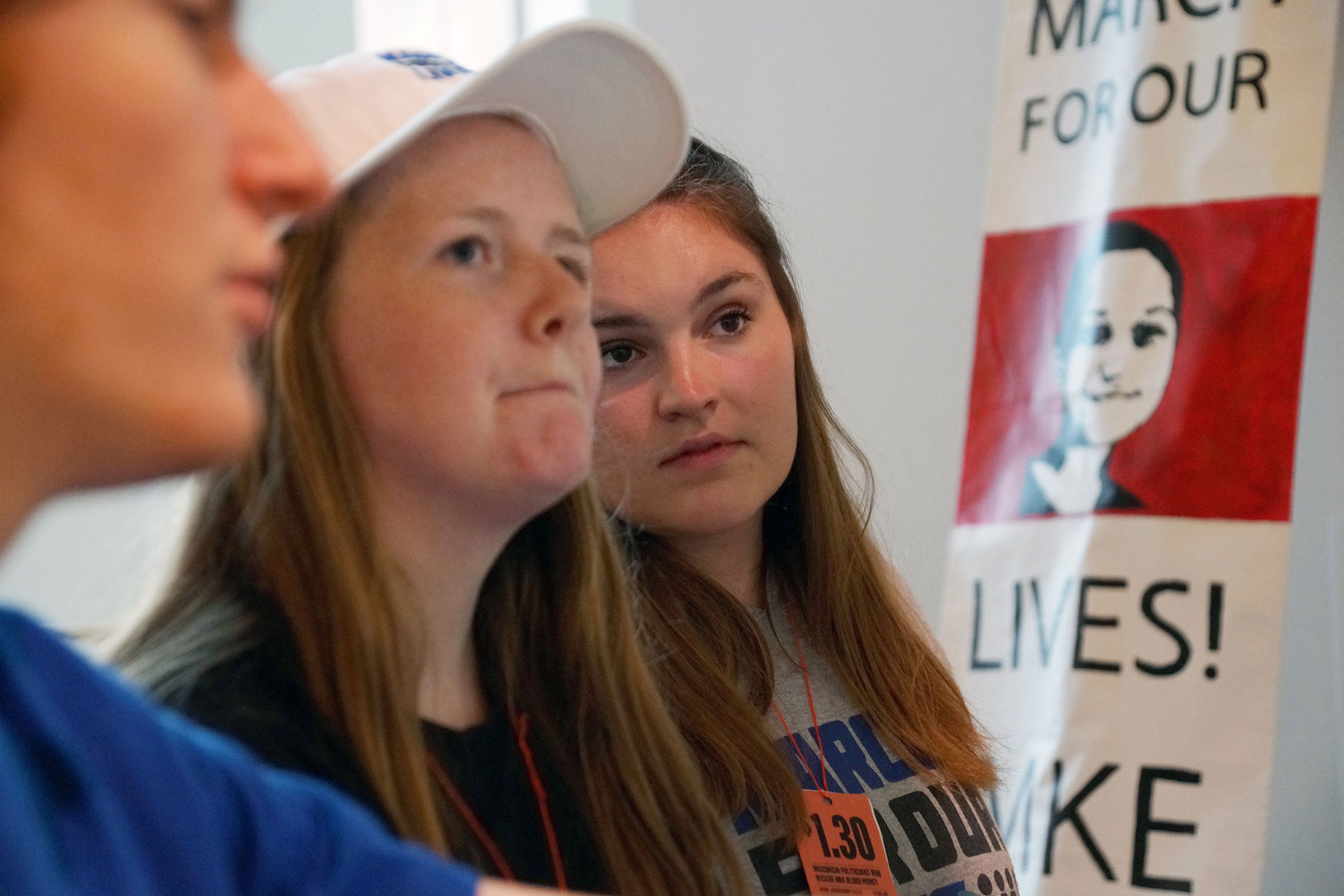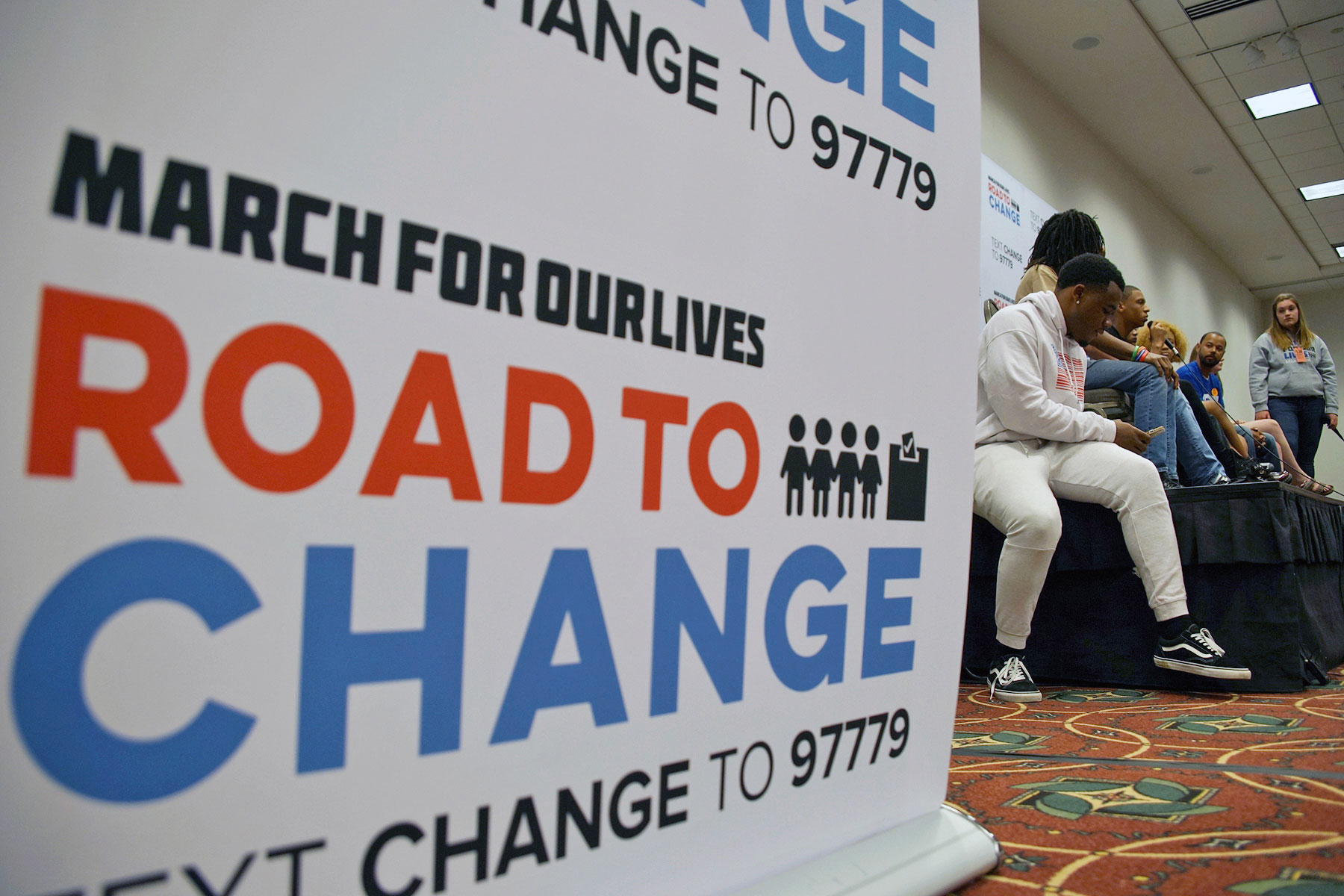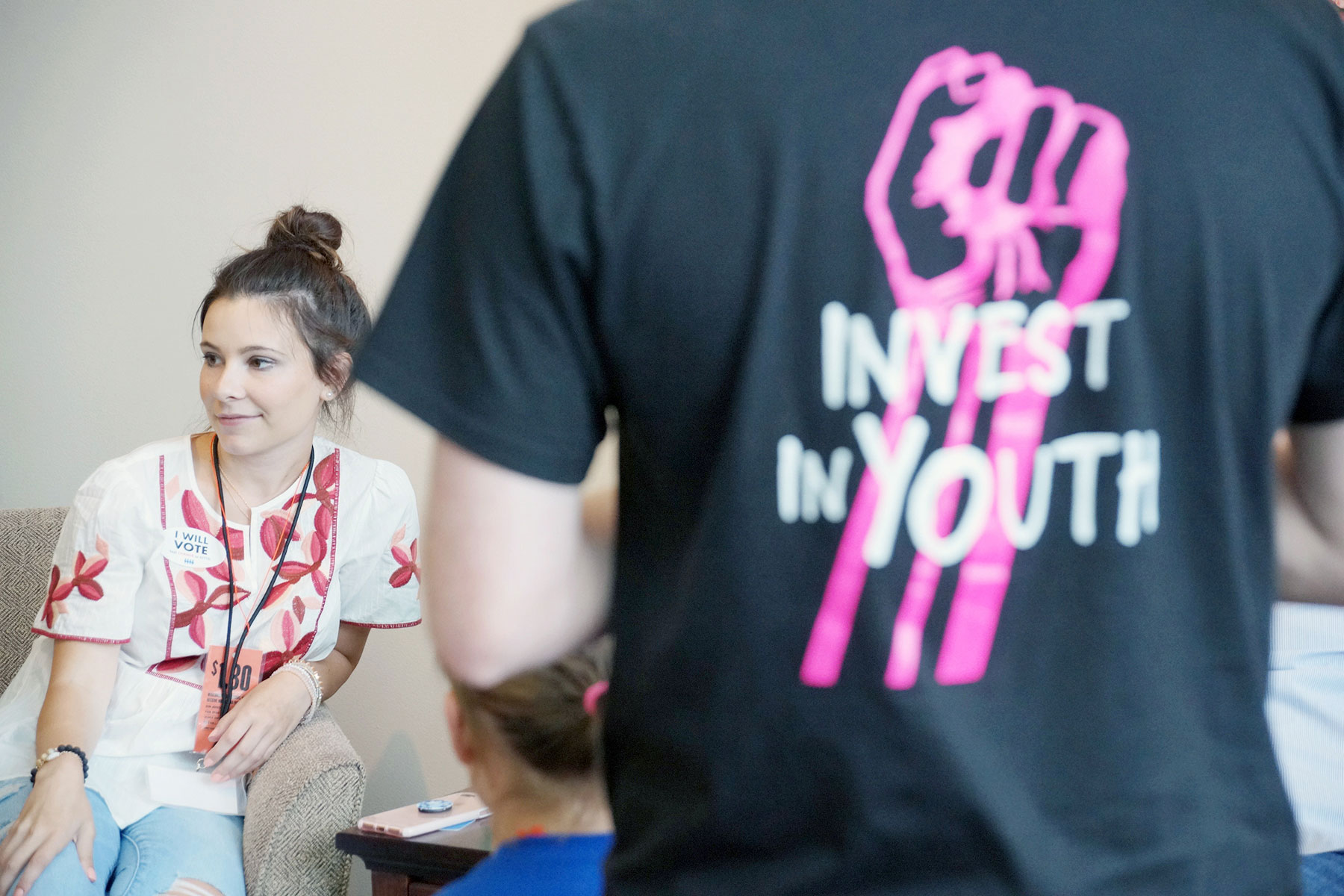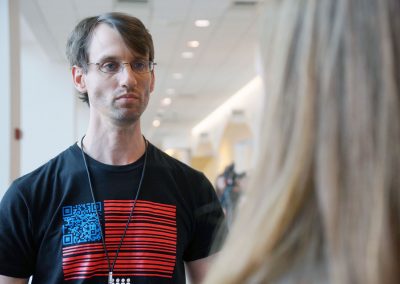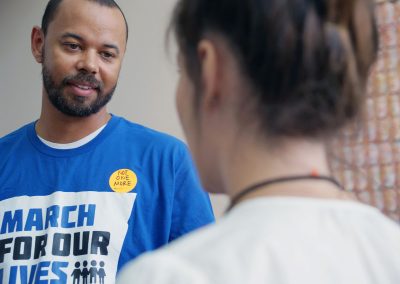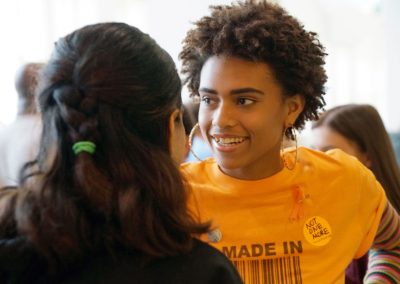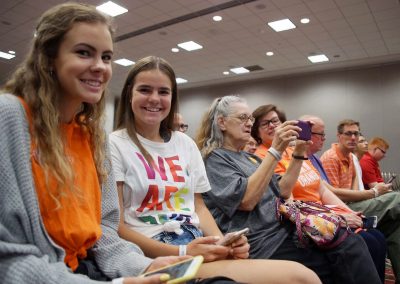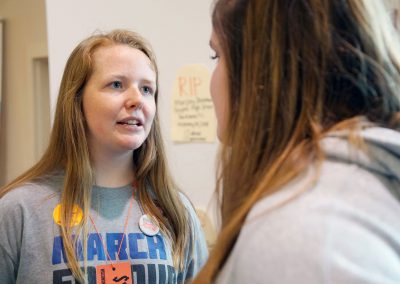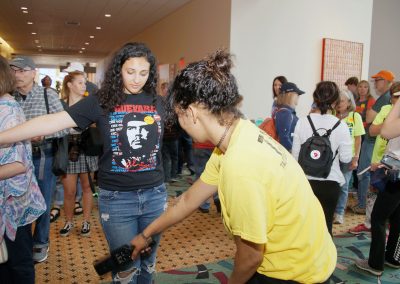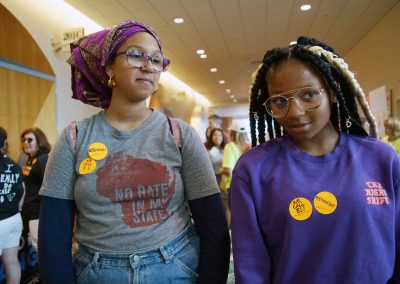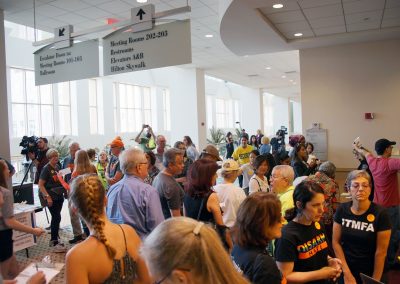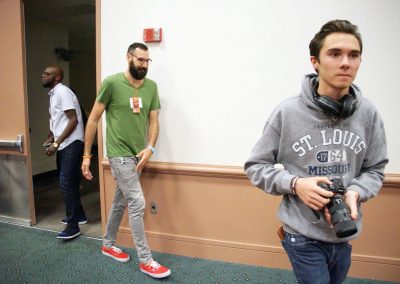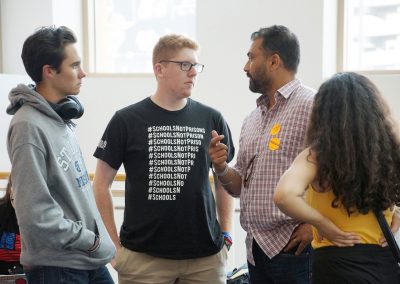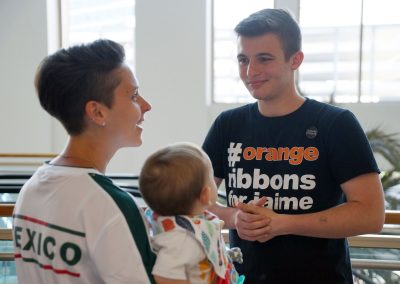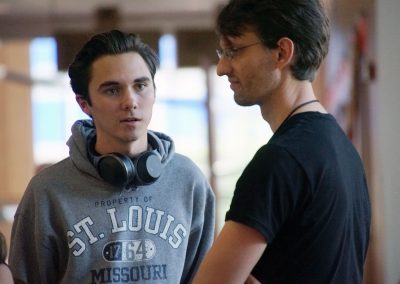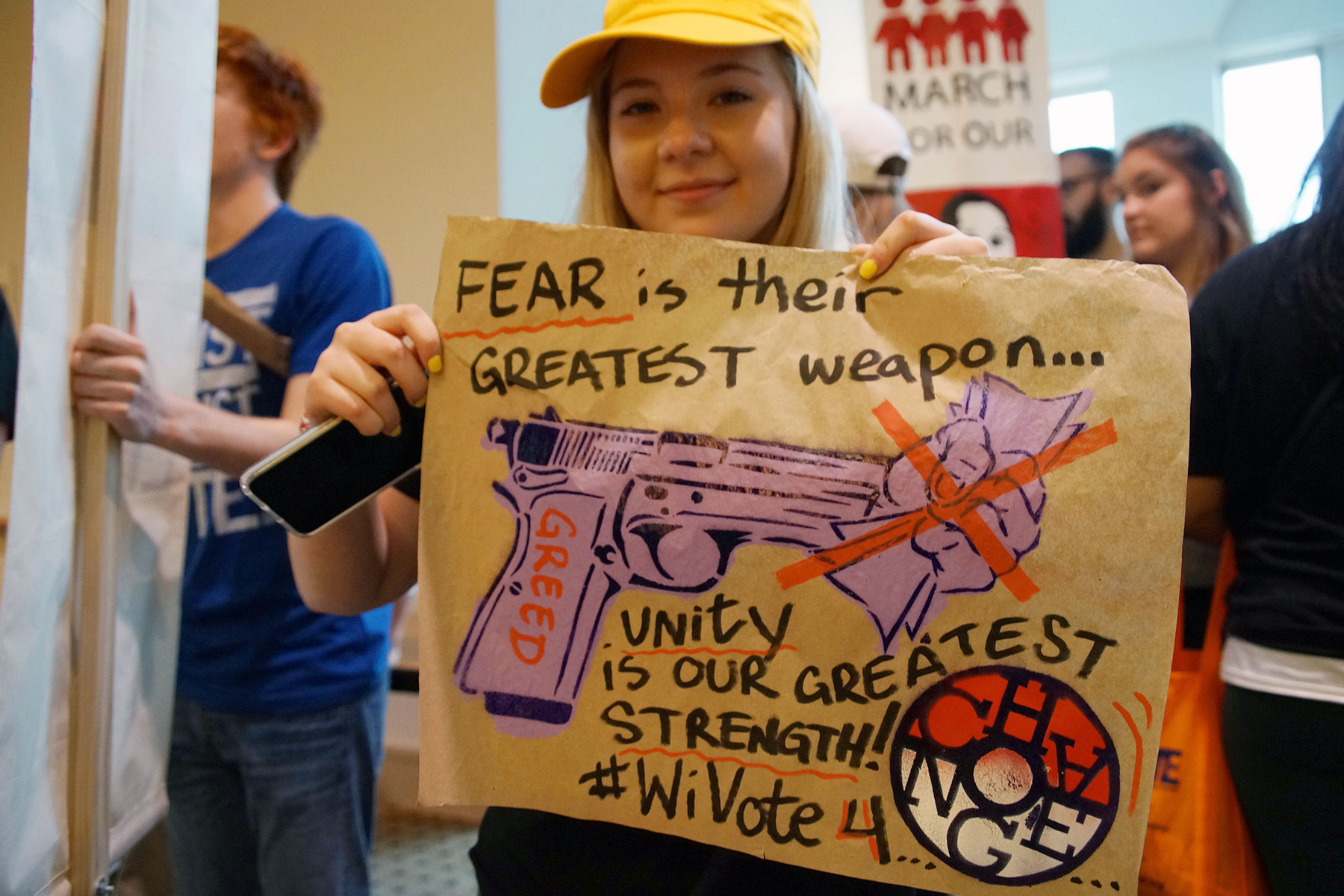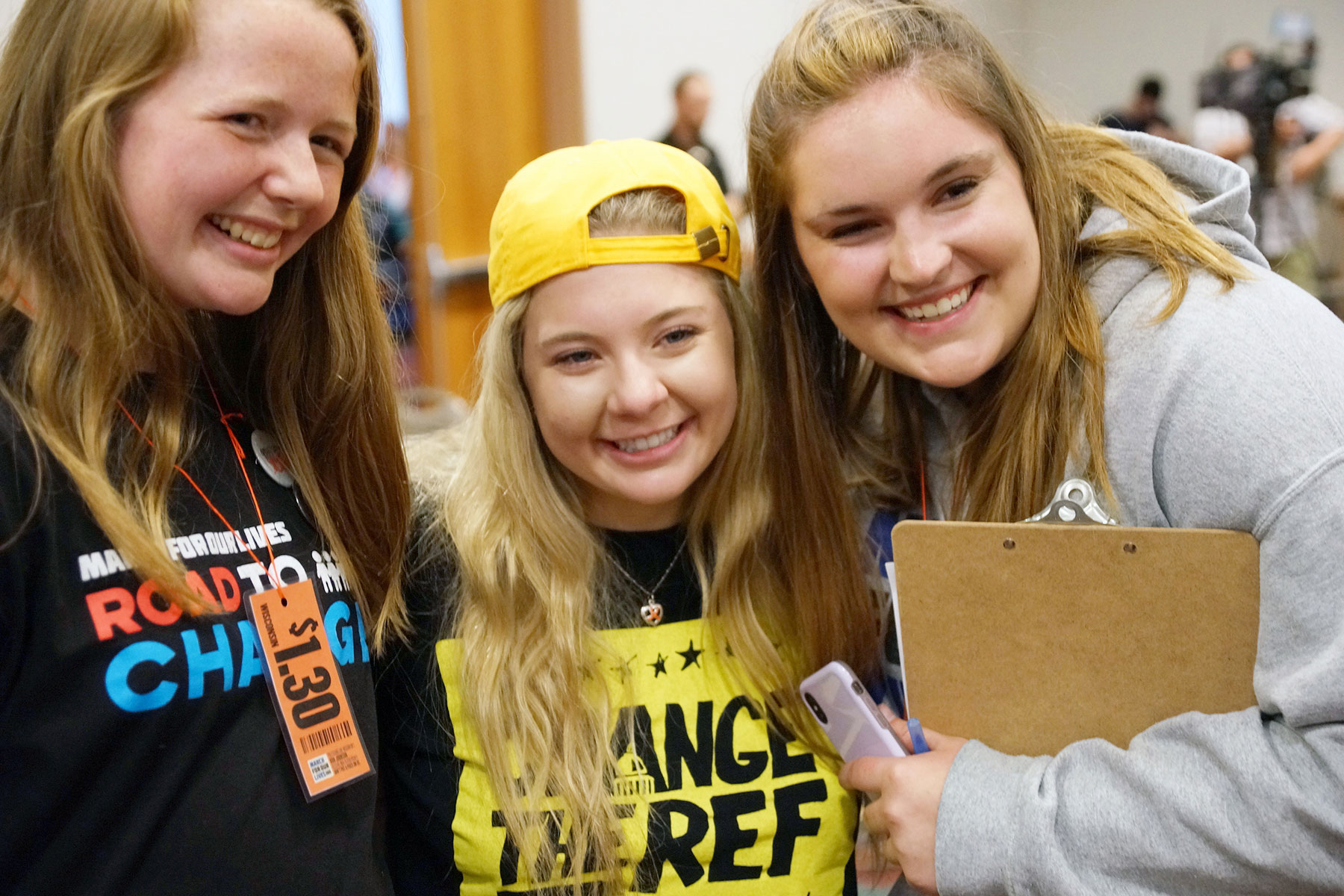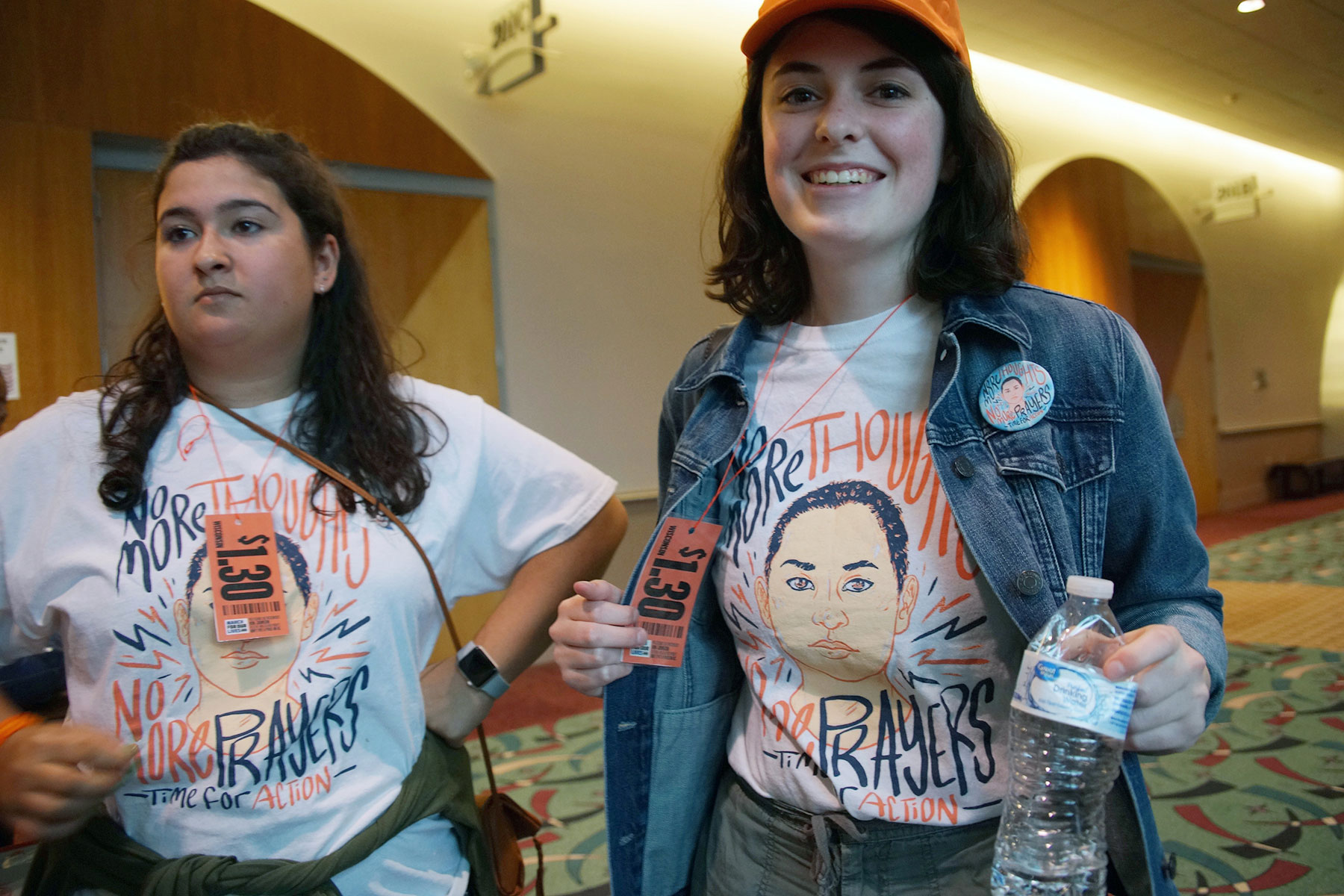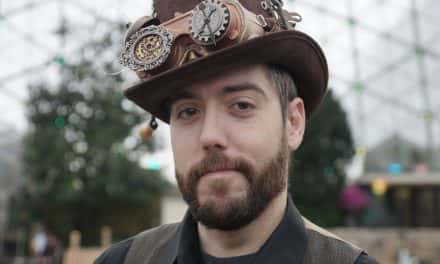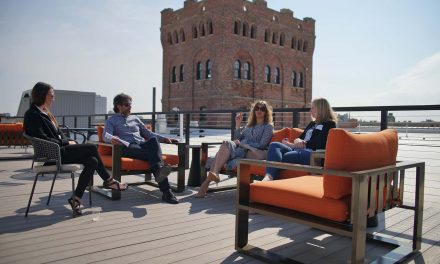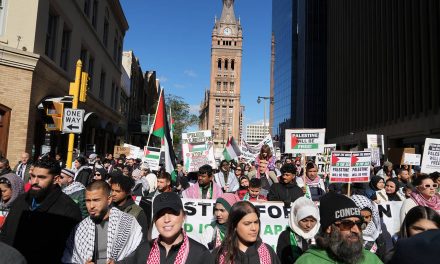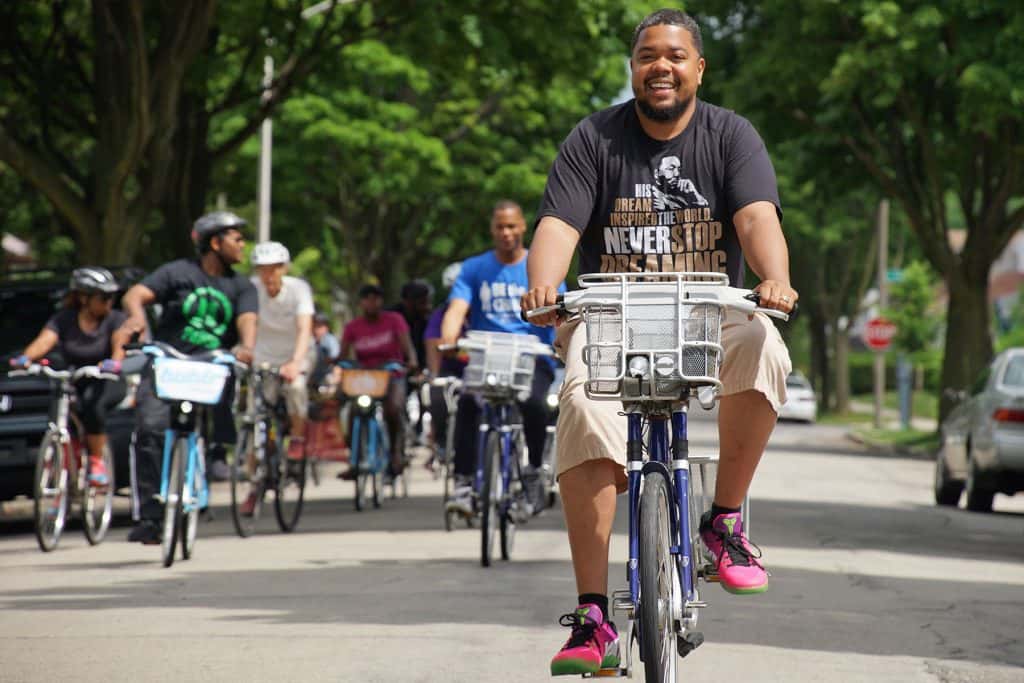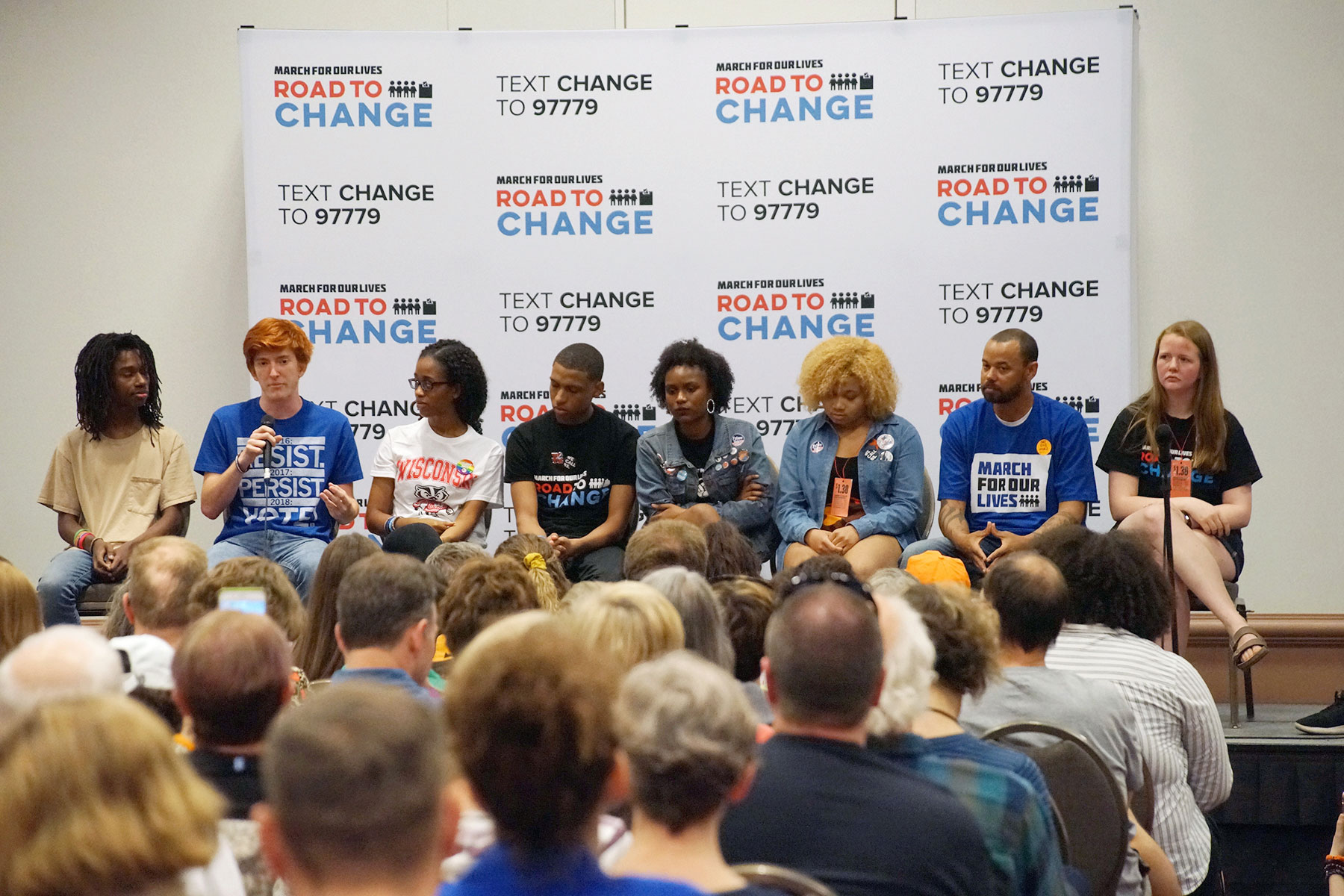
“My Mom’s name was Joyce. Do any of you know if she was Republican or Democrat? Neither do I, she died before I was old enough to speak. The bullet that exploded her head did not care either. The bullet that shot and kiIIed 10-year-old Sierra Guyton didn’t care if she would grow up to be a Republican or a Democrat. A bullet does not care. It is the one thing that we can think of that as apolitical. Your zip code doesn’t shield you from gun viоIеncе.”
– Khary Penebaker
Survivors of the Stoneman Douglas High School mass shooting in Parkland, Florida visited Milwaukee on June 23 as part of their tour to engage students in the national push for gun reform. Over the summer break, students from March For Our Lives are making stops across America to help educate youth and get them motivated to vote.
March For Our Lives: Road to Change arrived in Milwaukee almost three months to the day from the March 24 national school walkout to protest gun violence, which followed a few weeks after the tragic Parkland attack that claimed the lives of 17 people.
The tour program is just the latest effort to stand up to the National Rifle Association (NRA), and enact smart gun legislation that the overwhelming majority of American citizens have been demanding. The students are also making it clear within their discussions that they are in not trying to take away guns.
“No part of March For Our Lives is anti-gun. That’s the biggest misunderstanding people have and it’s simply not true. We do support gun rights and we do support the Second Amendment as stated in our Constitution. But we do have to realize when safety comes into play, and that this is an epidemic in our country.”
– Ryan Deitsch, a Stoneman Douglas High School survivor
The bus tour plans to visit 50 locations in 20 states. Prior to the Milwaukee event, students from Stoneman Douglas stopped in Janesville to leave legislation at House Speaker Paul Ryan’s office, before moving on to a rally in Madison.
At the Wisconsin Center, more than five hundred people attended the panel discussion, in support of the Parkland students and their message. The members included Stoneman Douglas High School survivors, as well as Milwaukee student activists like Linnea Stanton, who co-organized March For Our Lives – Milwaukee, and Tatiana Washington, who co-organized 50 Miles More – Wisconsin.
After the panel discussion, members took questions from the audience which spanned ethnicities and generations. One of the goals for Road to Change has been to include local voices. Students from destination cities have joined the tour along various segments and stops.
Organizers have been striving to be more inclusive with their efforts. The national movement is creating a network of young people who are educated on gun violence, and can encourage others to vote so they can affect public policy that keeps children safe, especially at school.
“Everyone who that was in this huge room is out there fighting for us. They’re out there fighting for your kid. They are out there fighting for you and me, so that we can live in a safe and just world. It doesn’t matter what side of the isle you’re on, we are human beings. We all want the same thing. We want to raise a family with safety and security and we all just want to live.”
– David Hogg, a Stoneman Douglas High School survivor
- Messages to NRA shown on signs at “March for Our Lives” in Milwaukee
- Milwaukee students participate in art build to support “March for Our Lives”
- Mayor Barrett and students appeal to Governor Walker to value the lives of kids over NRA money
- The day Milwaukee turned orange to help end gun violence
- Daisy Kiekhofer: A Children’s Crusade Demanding Gun Control
- Golda Meir students join national school walkout against gun violence
- Peace advocates gather for mass vigil in latest plea to reform gun legislation
- Milwaukee students walkout of class in call to end gun violence on Columbine anniversary
- Massive crowd of Milwaukee families march to save their kids from guns
- Milwaukee students marching 50 miles to Speaker Paul Ryan’s hometown for gun reform
Lee Matz

